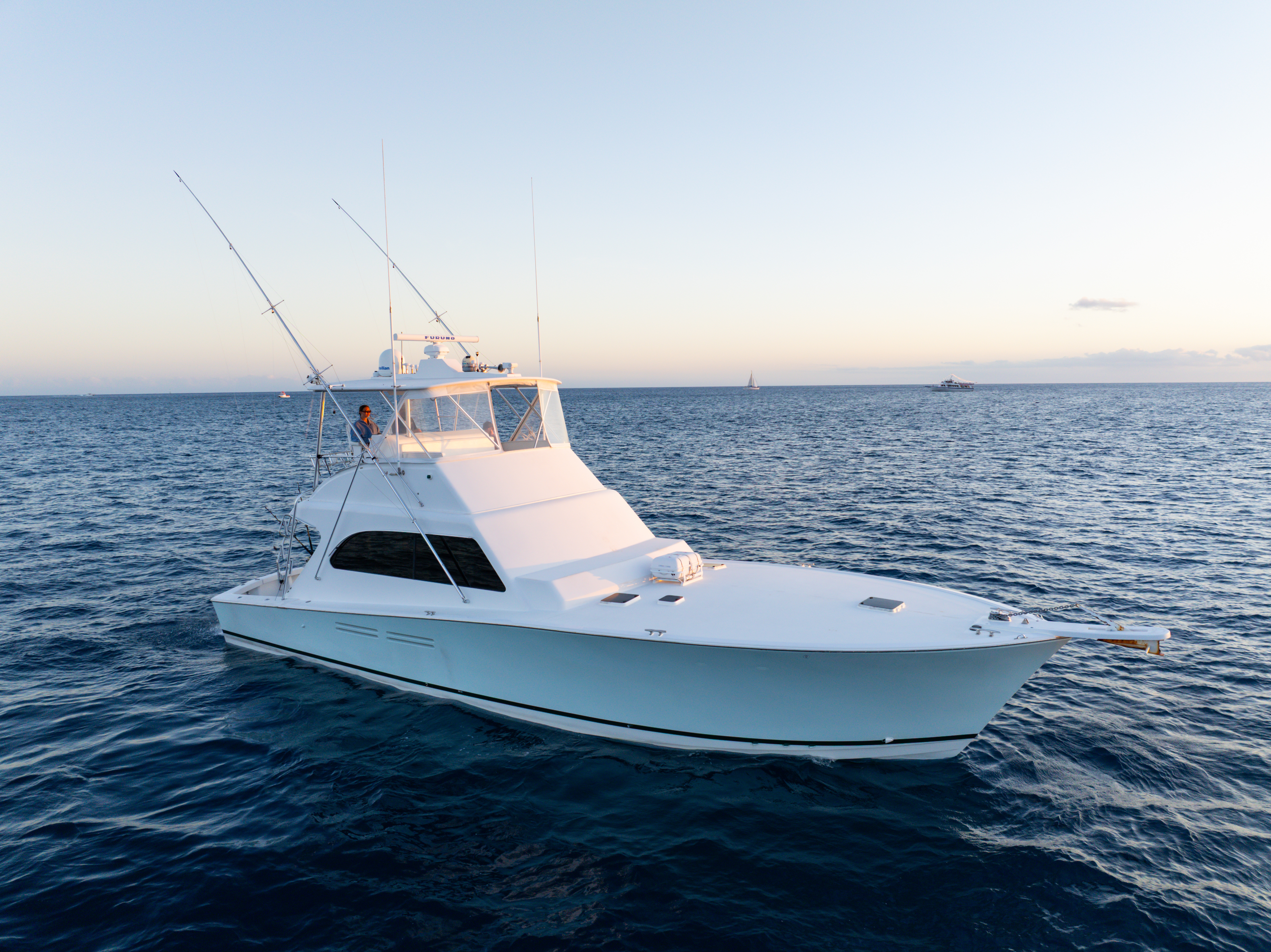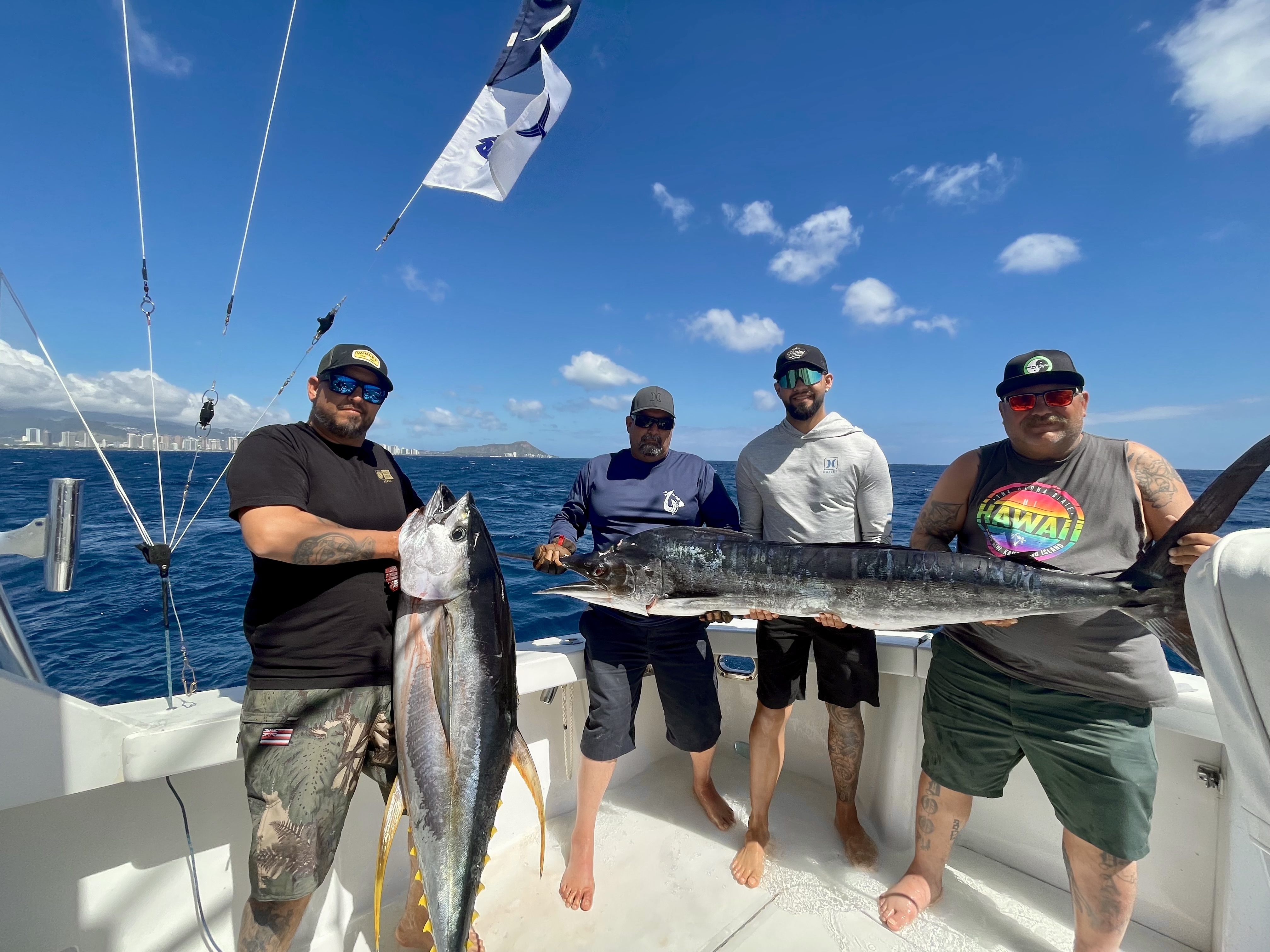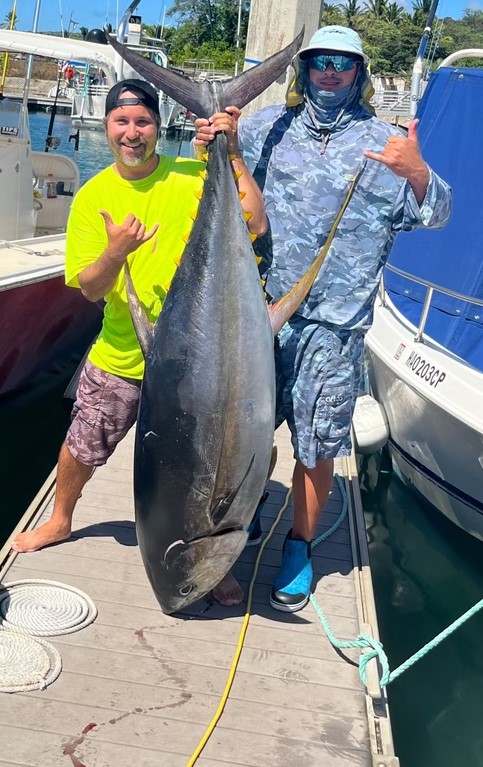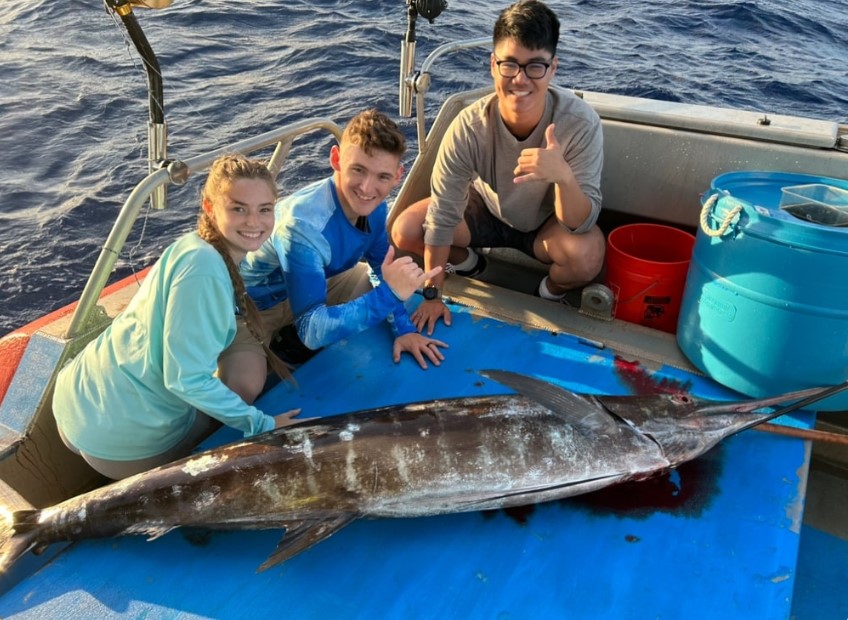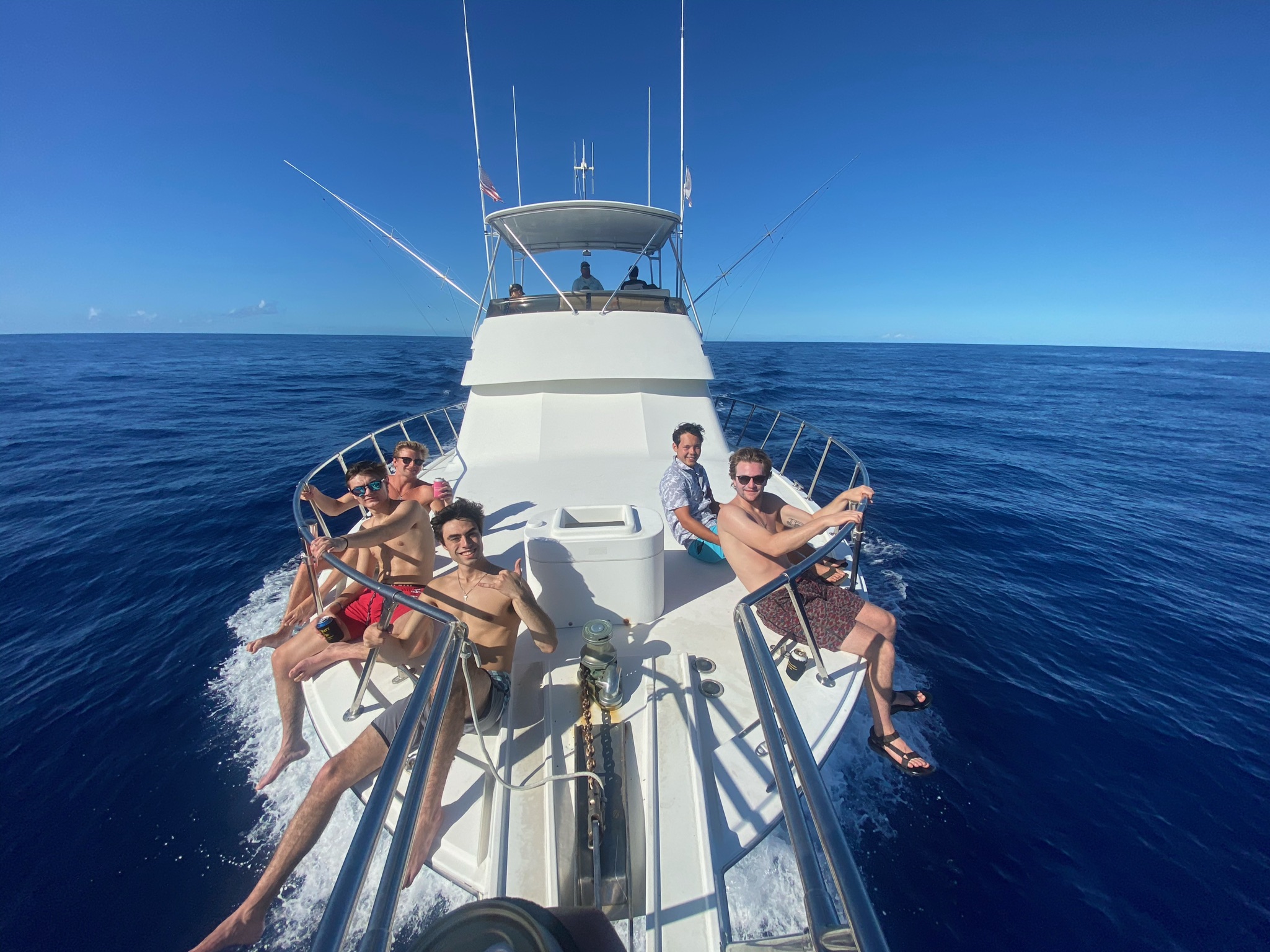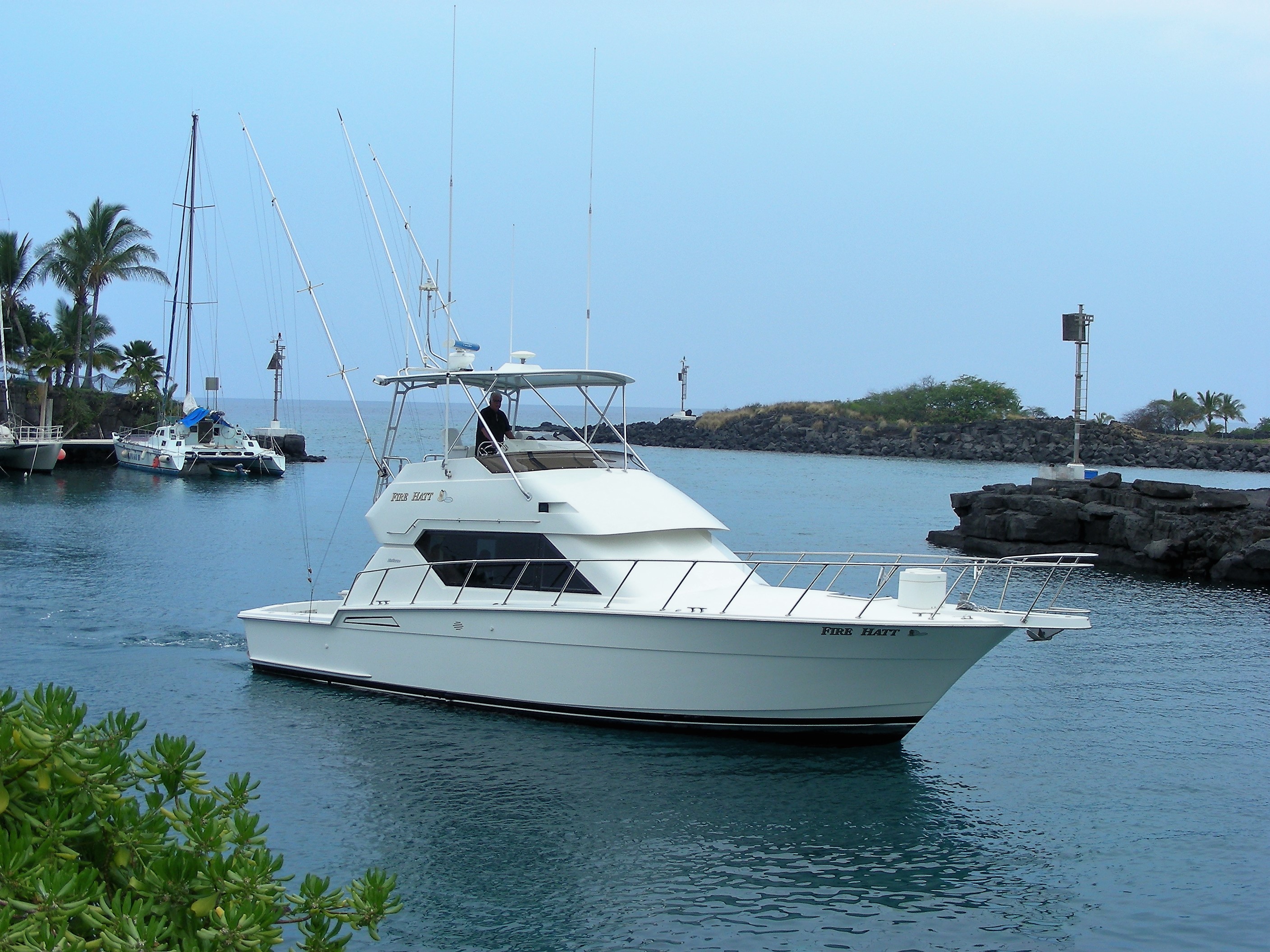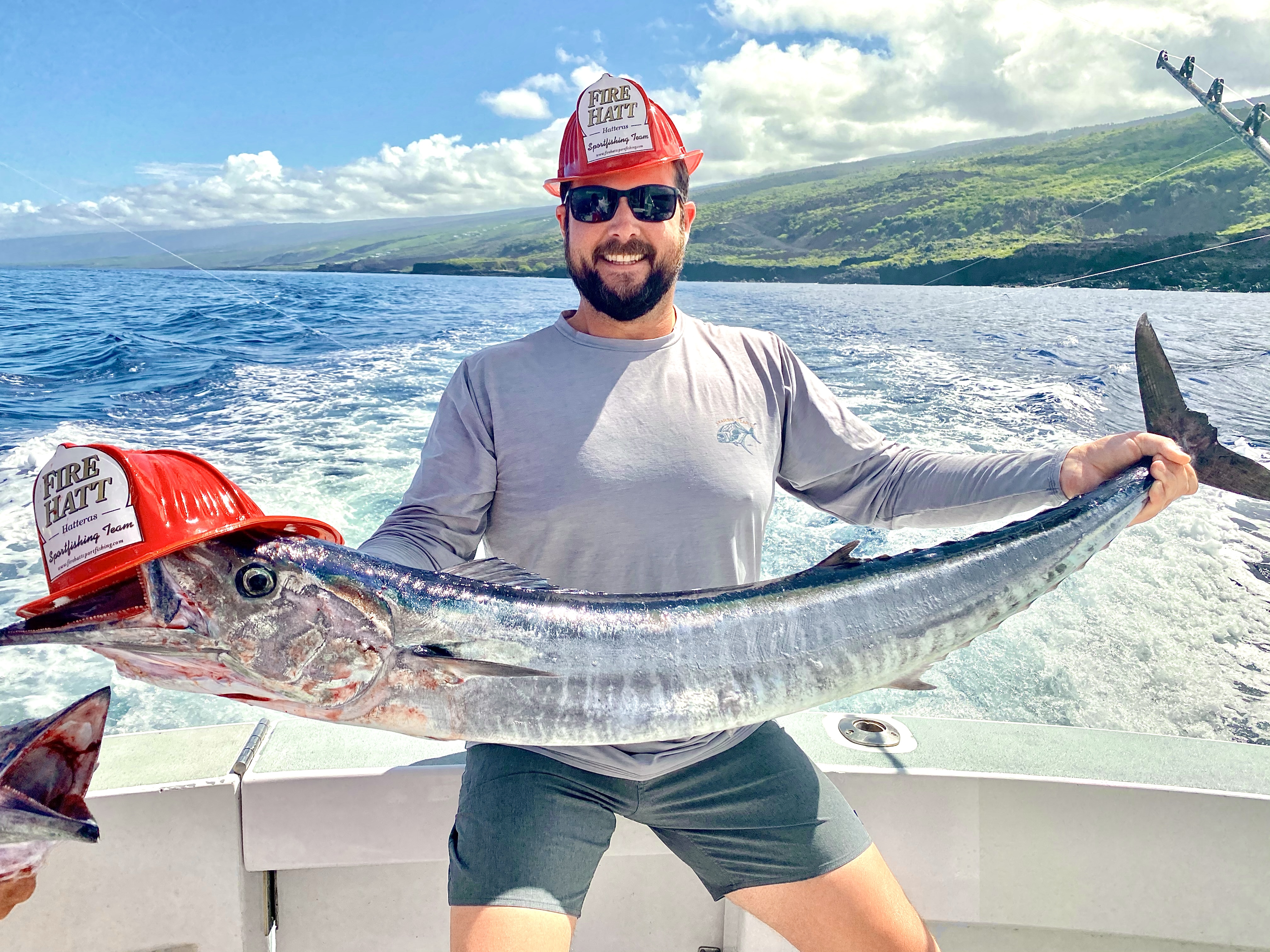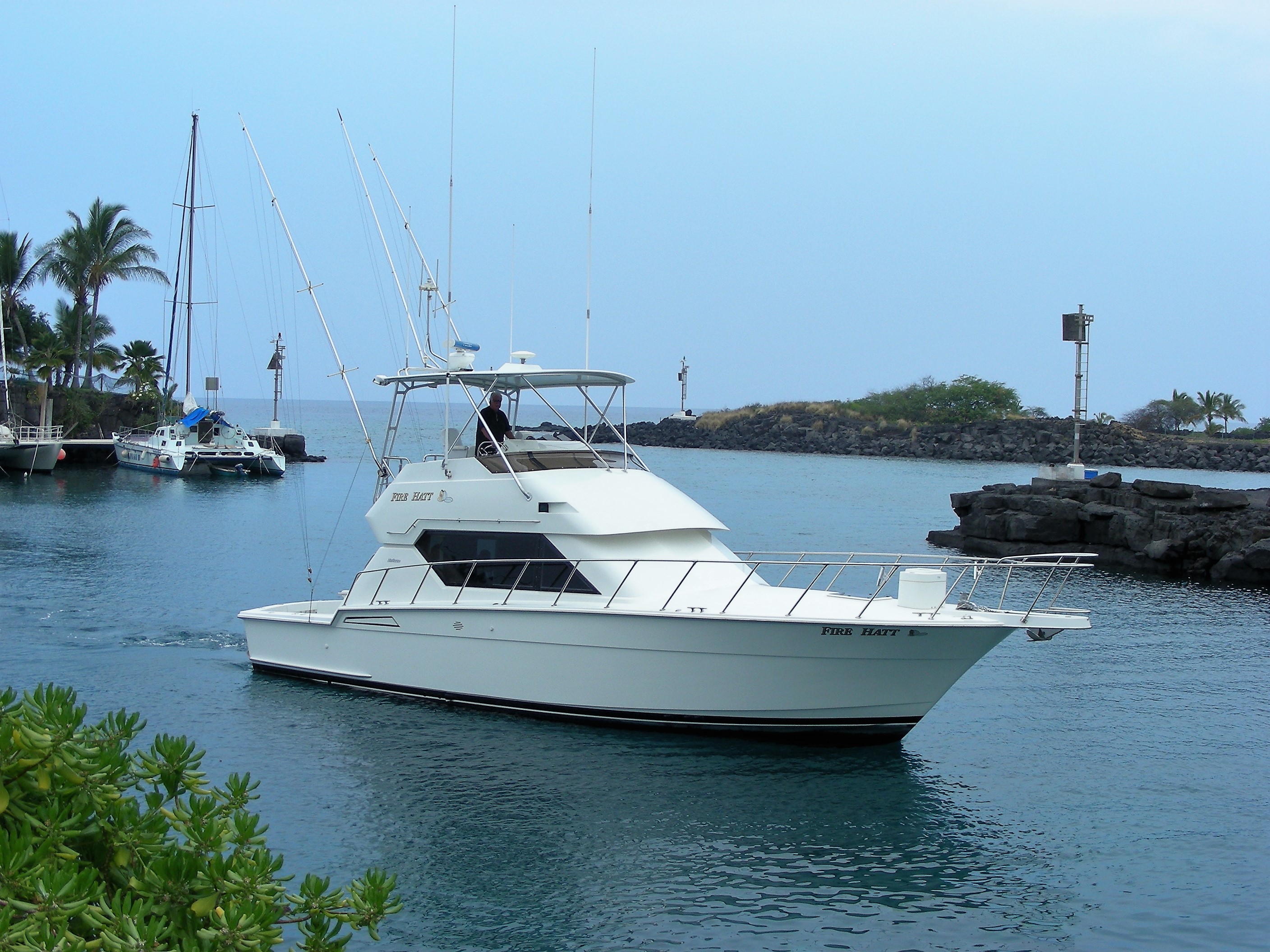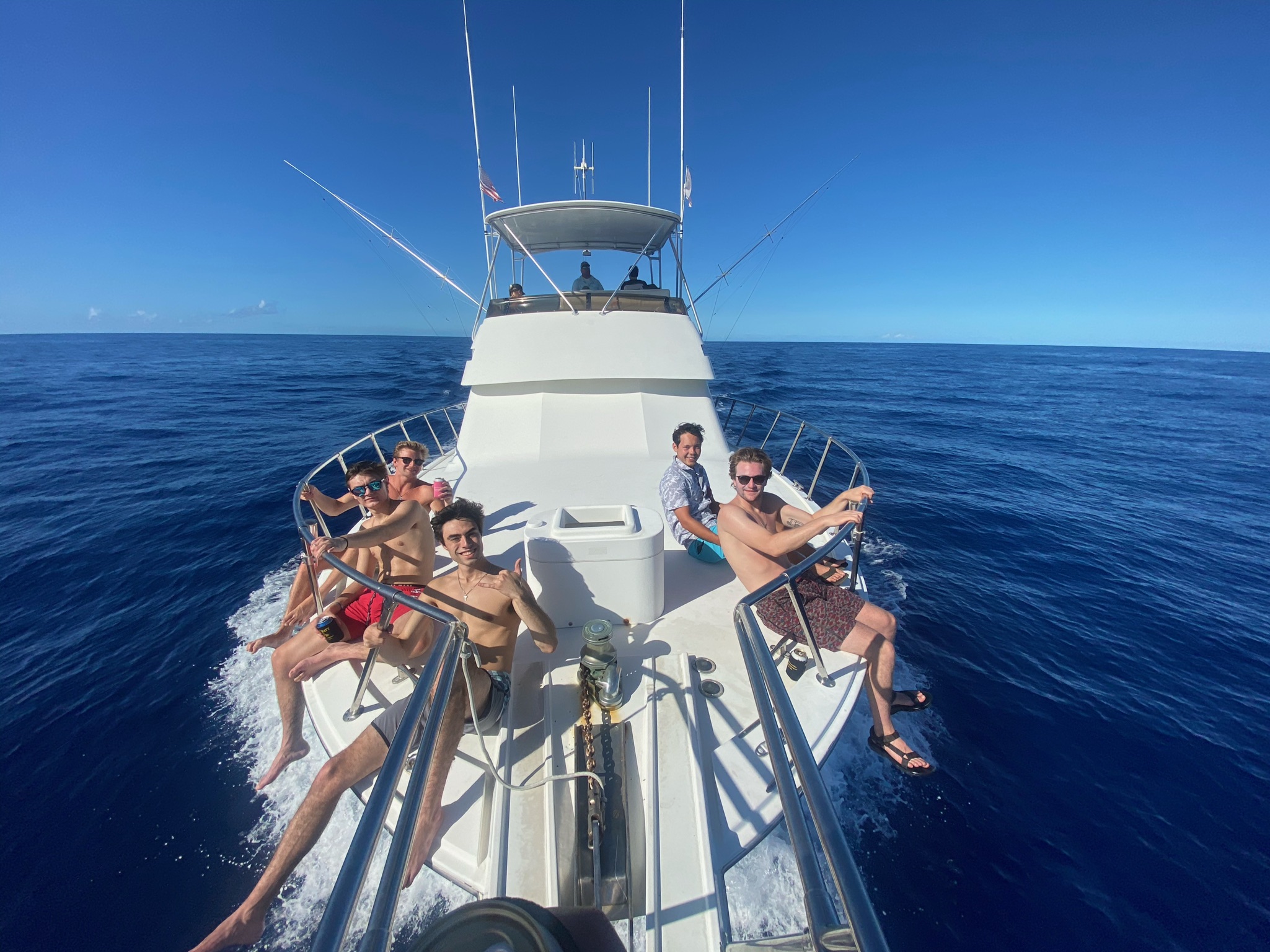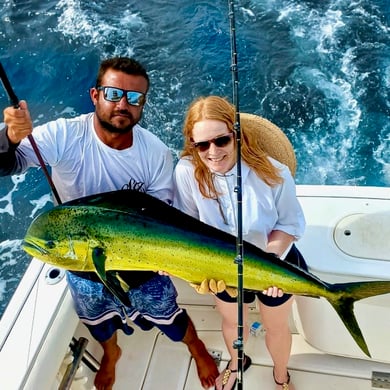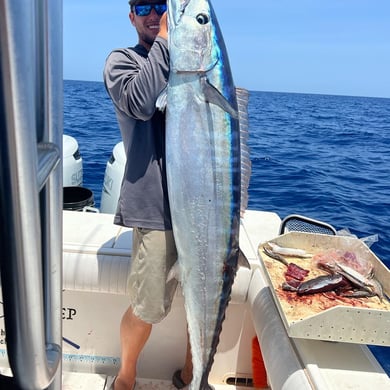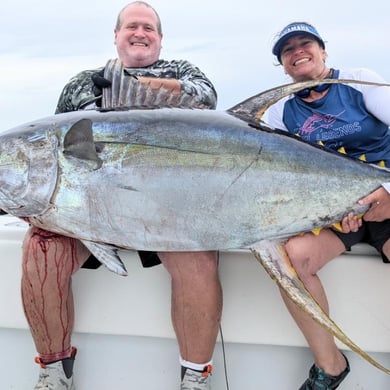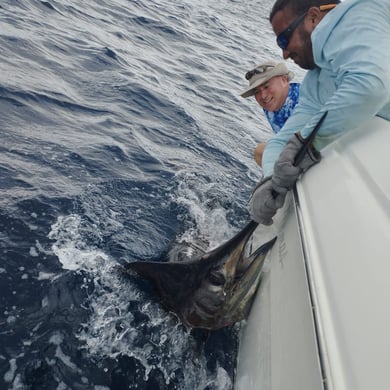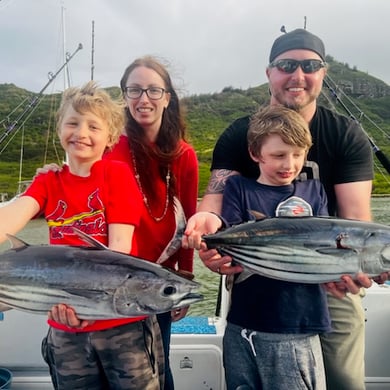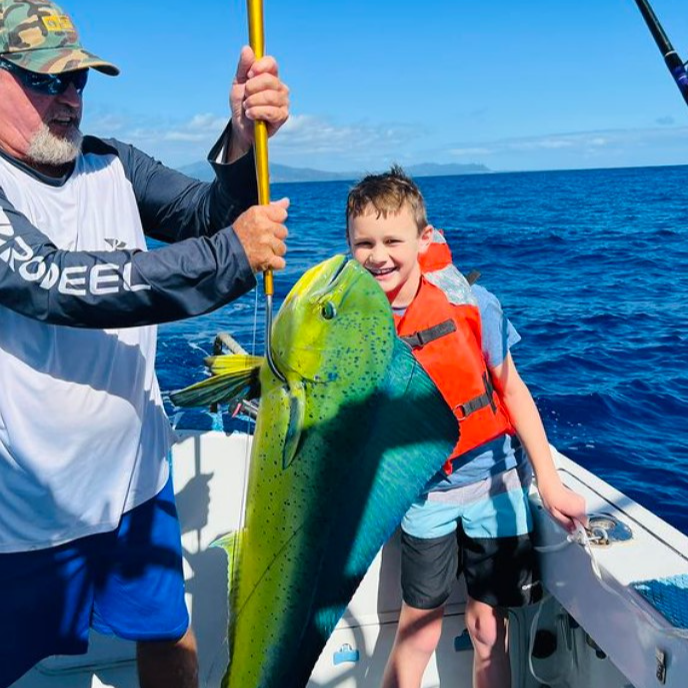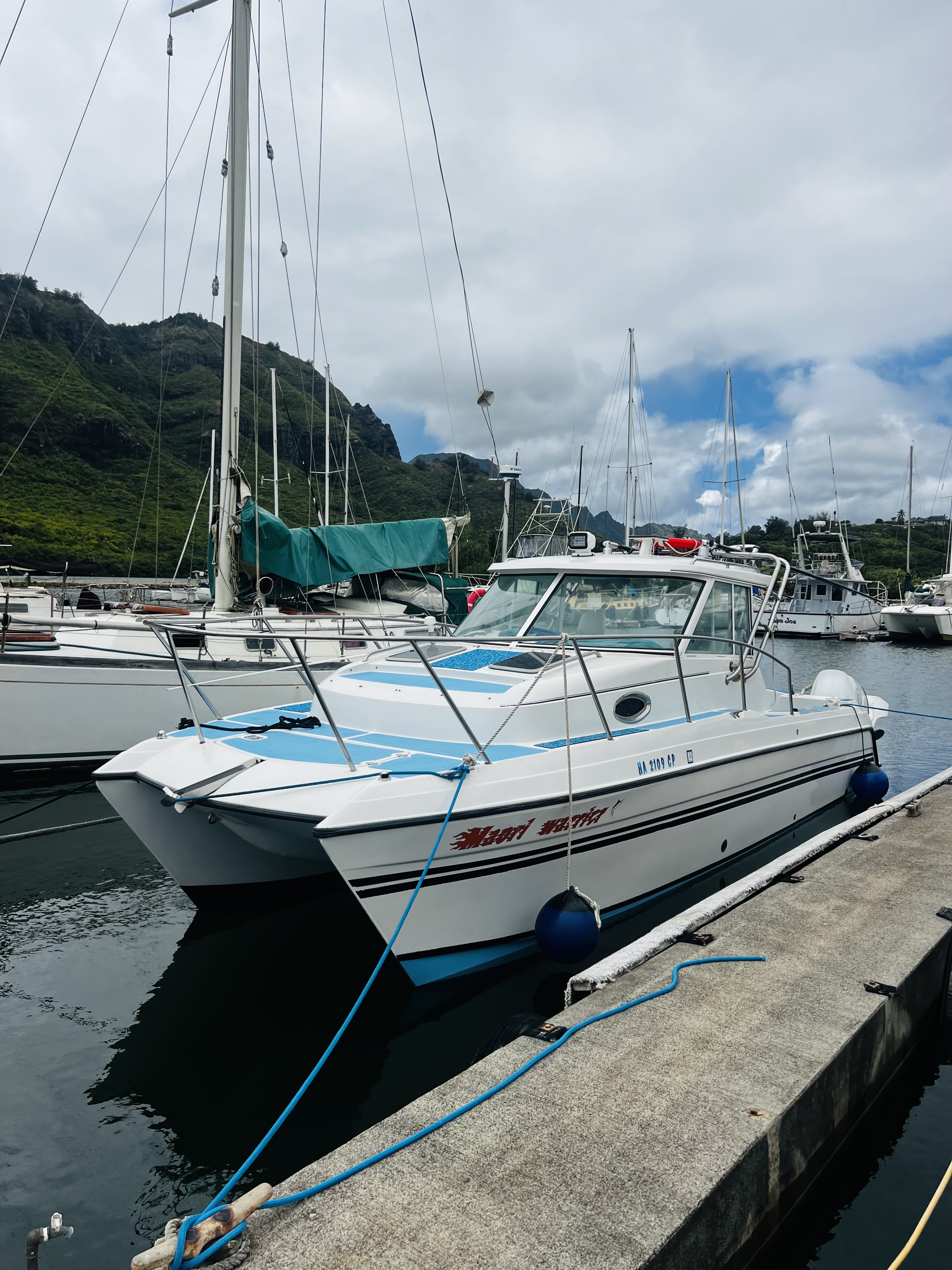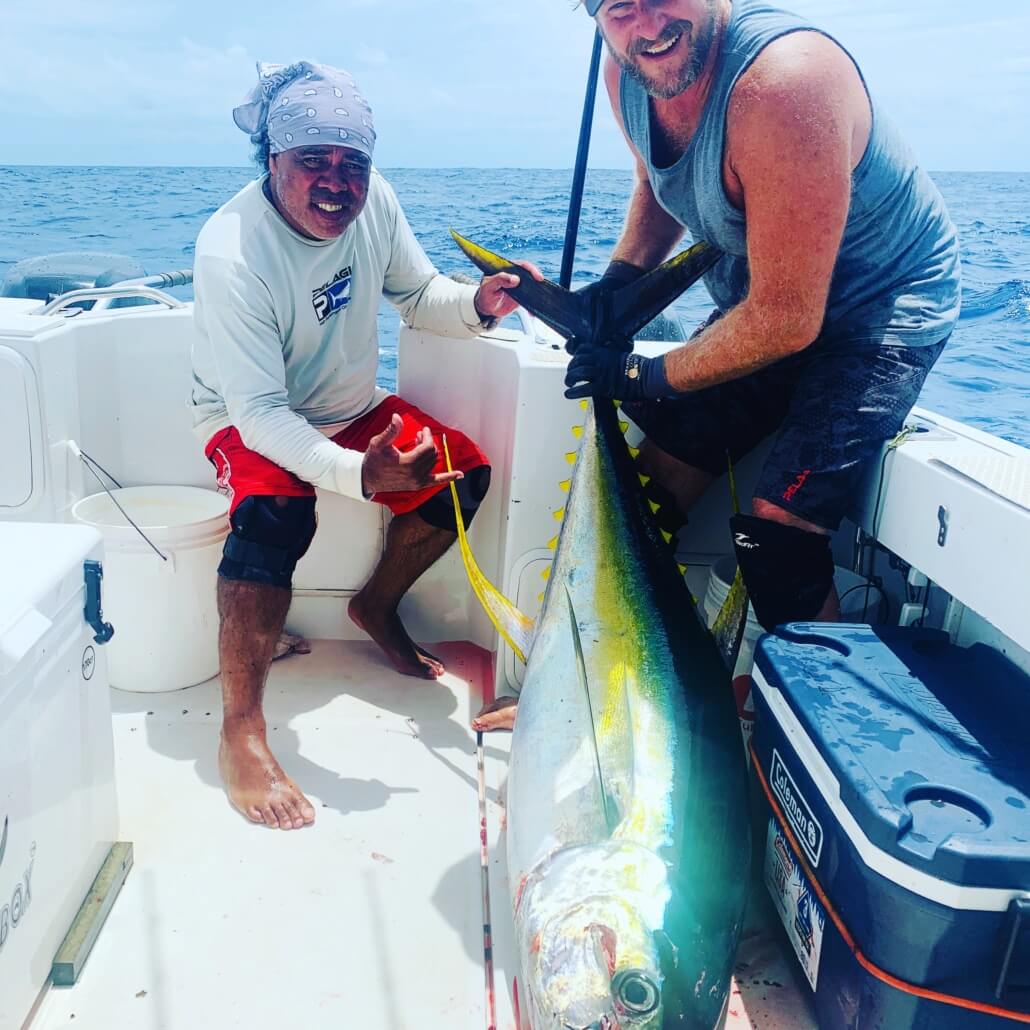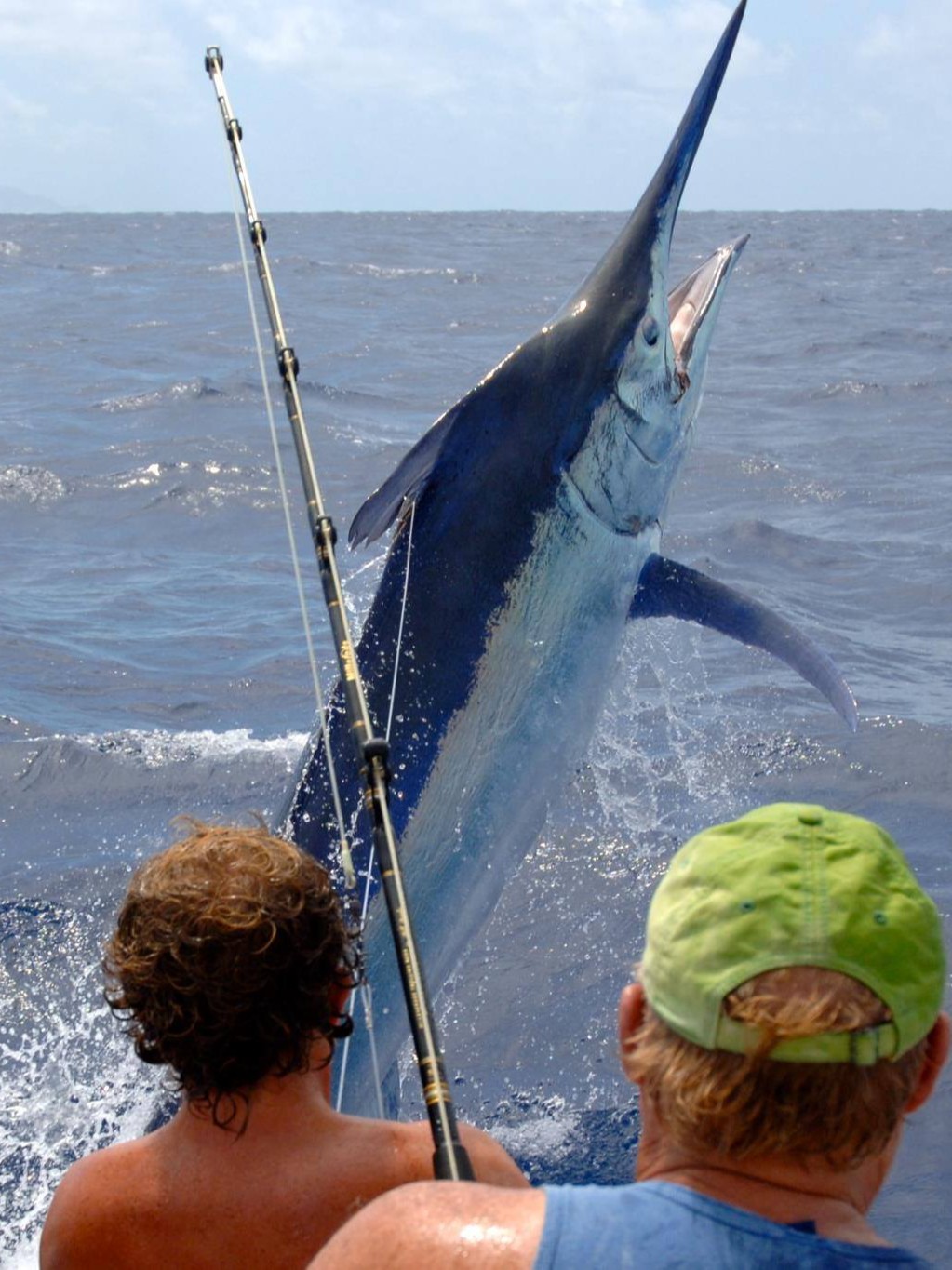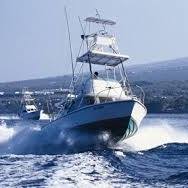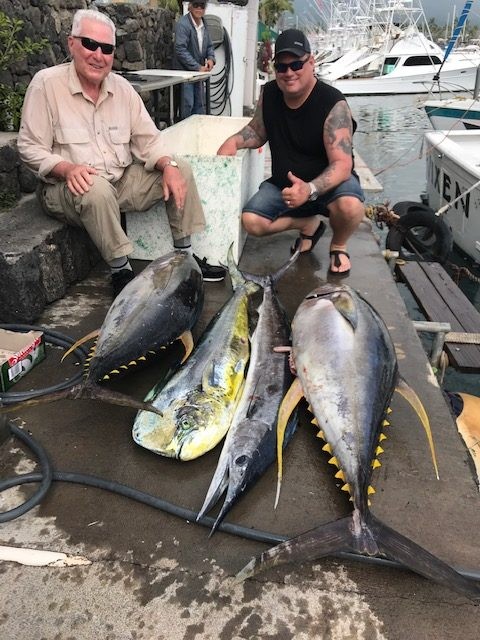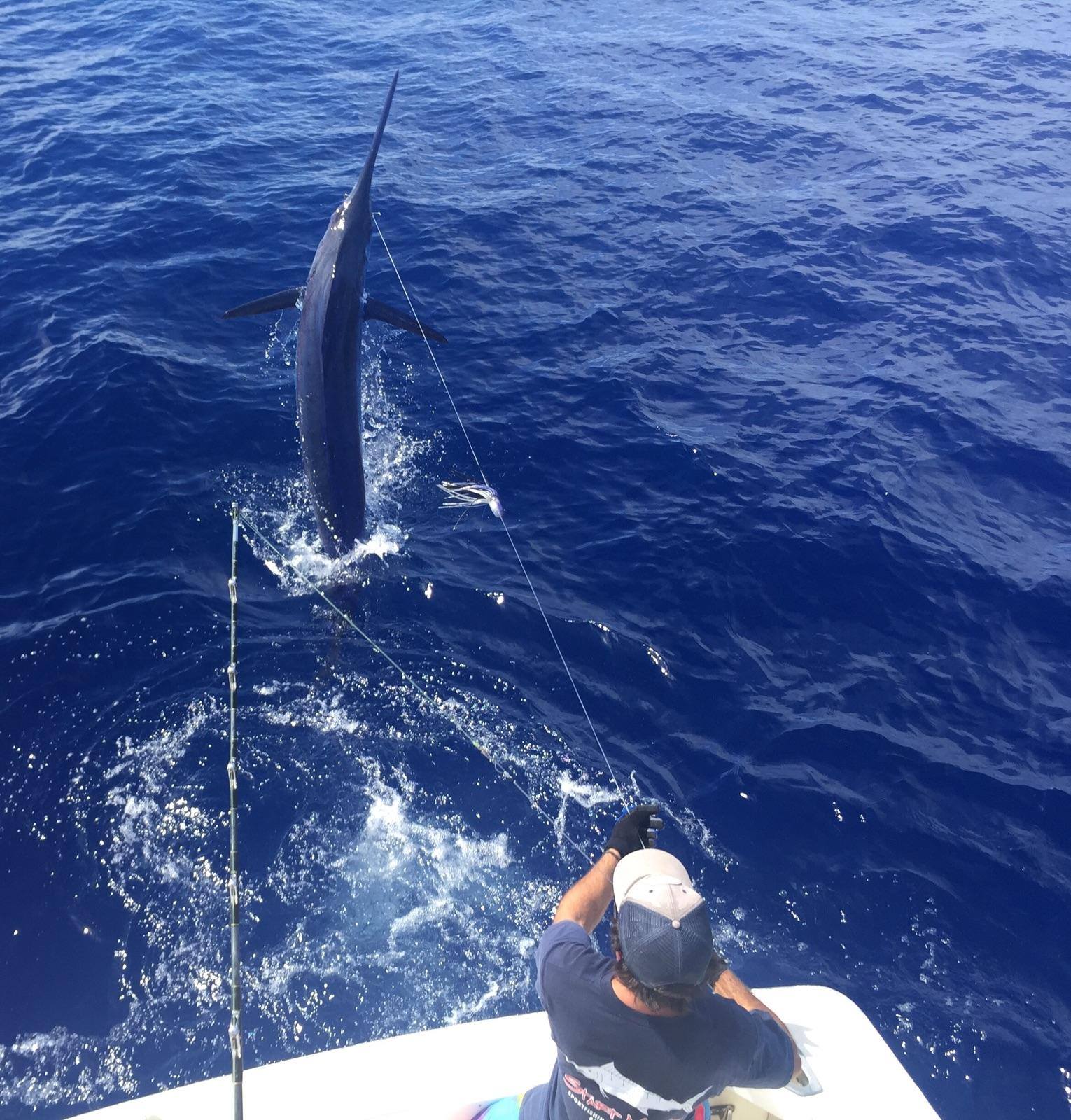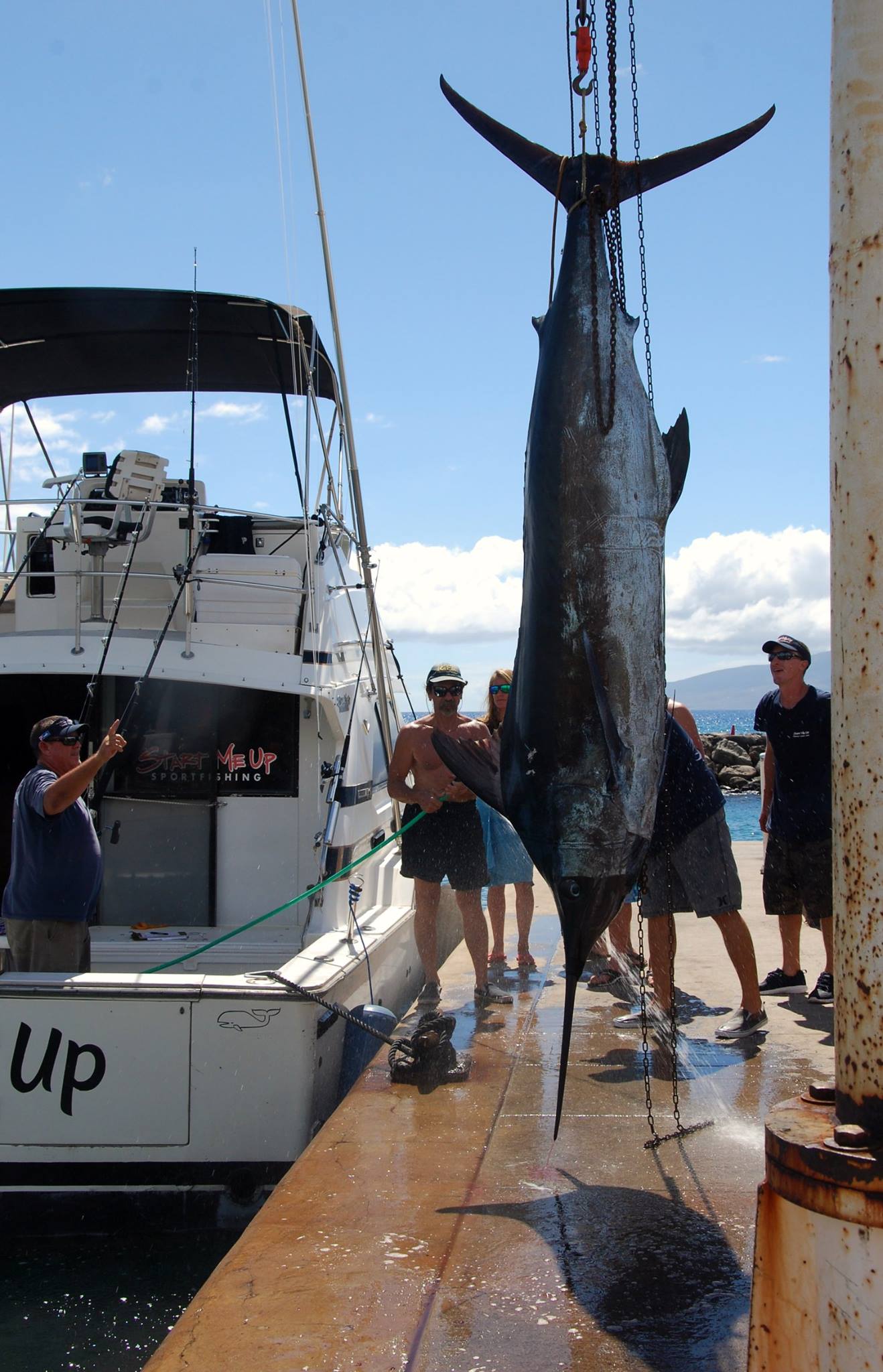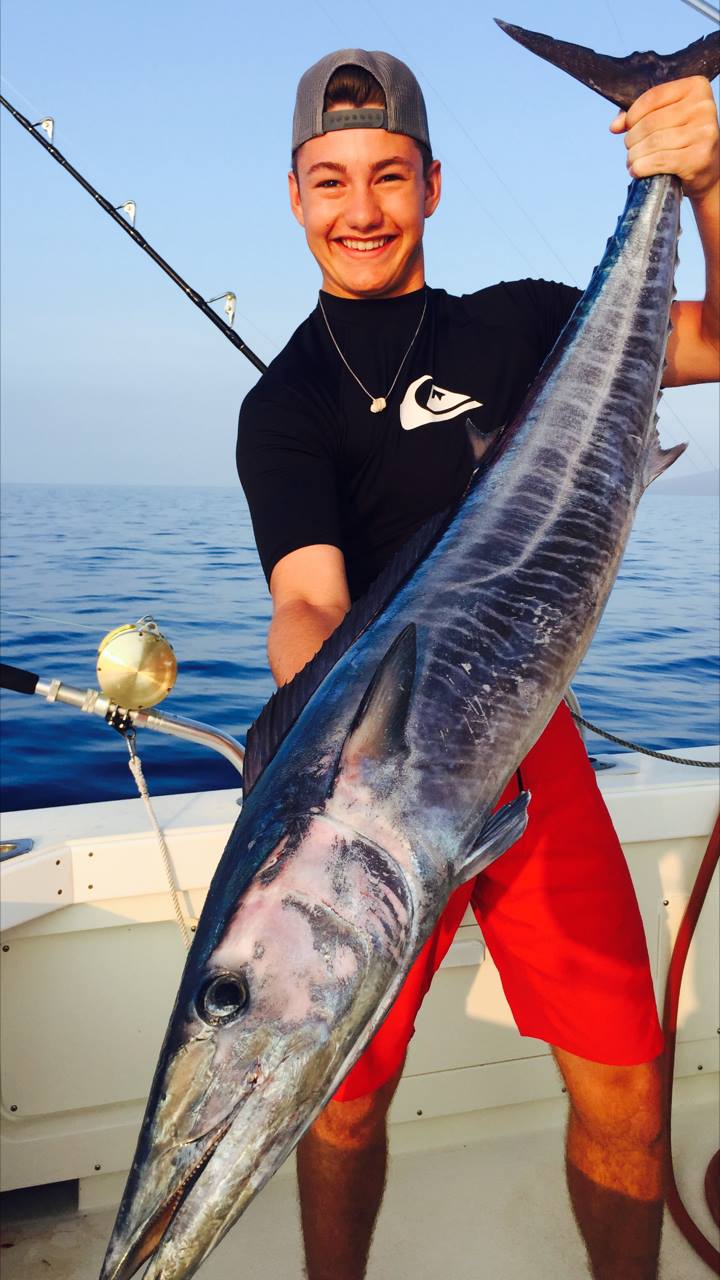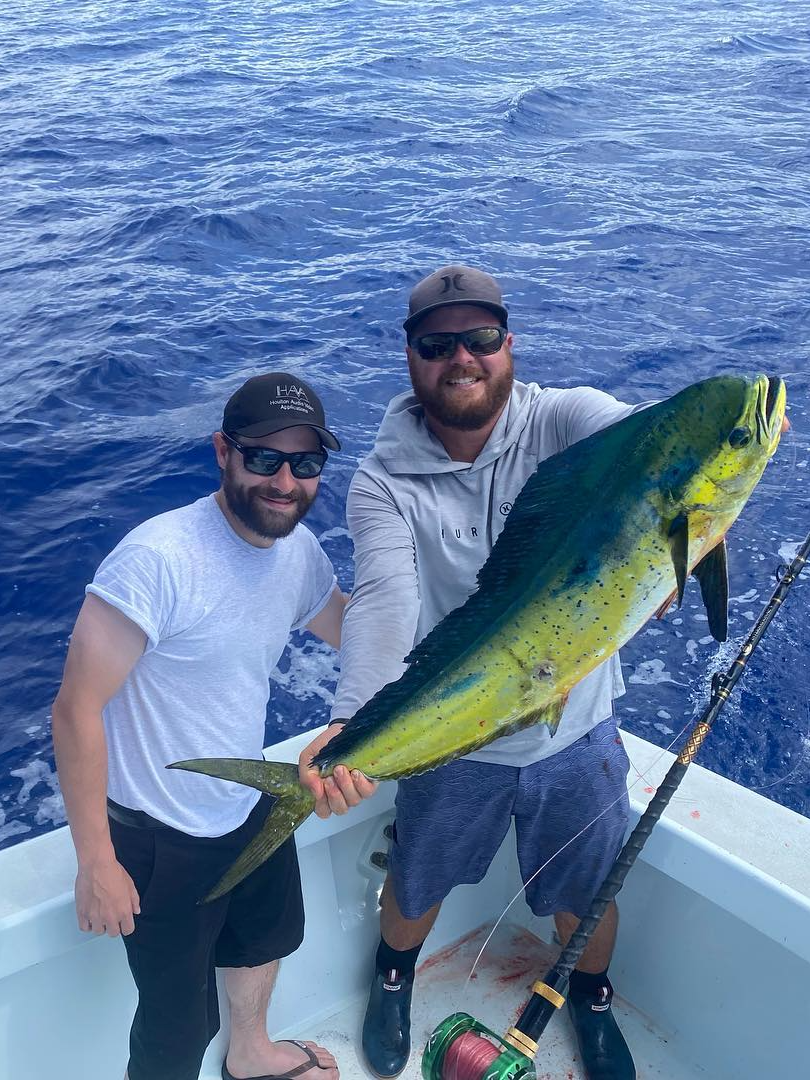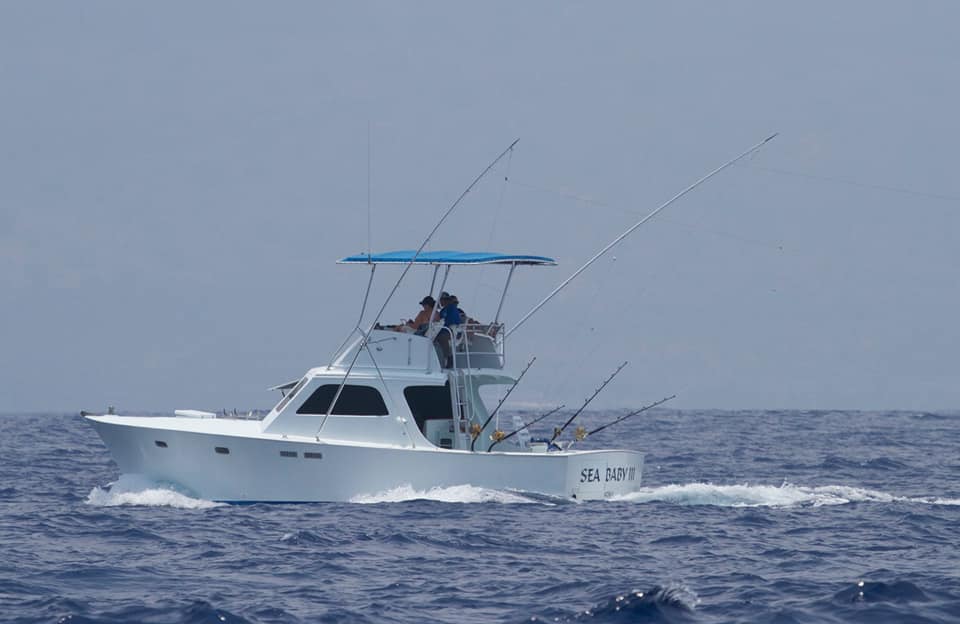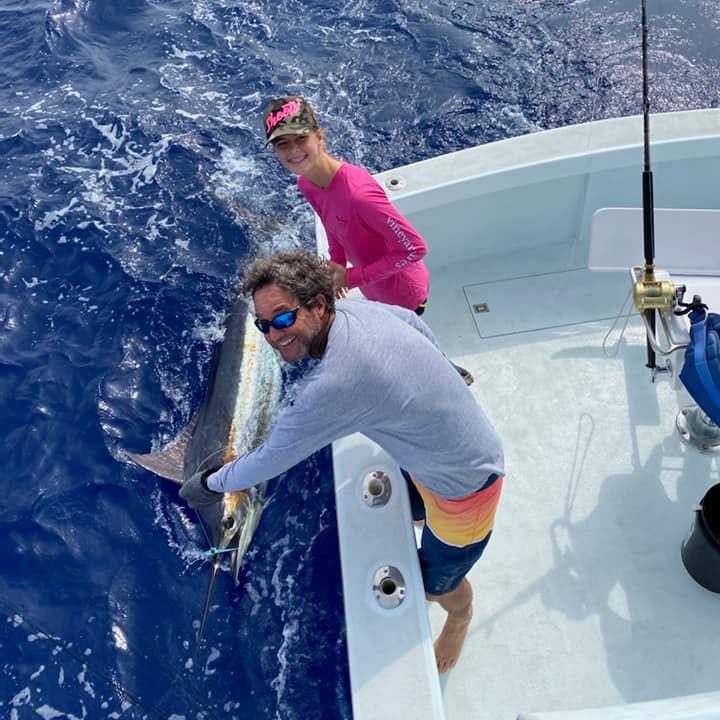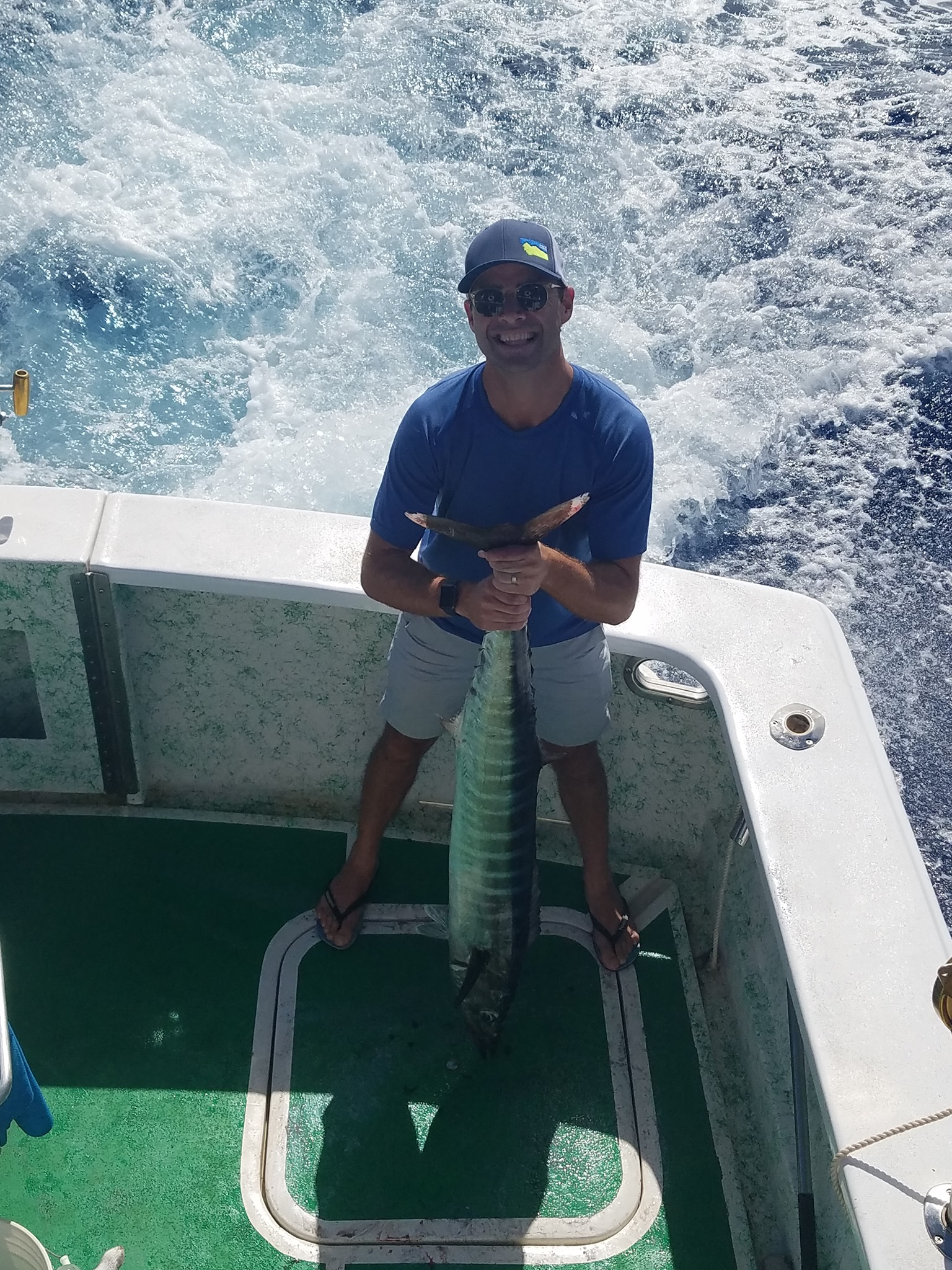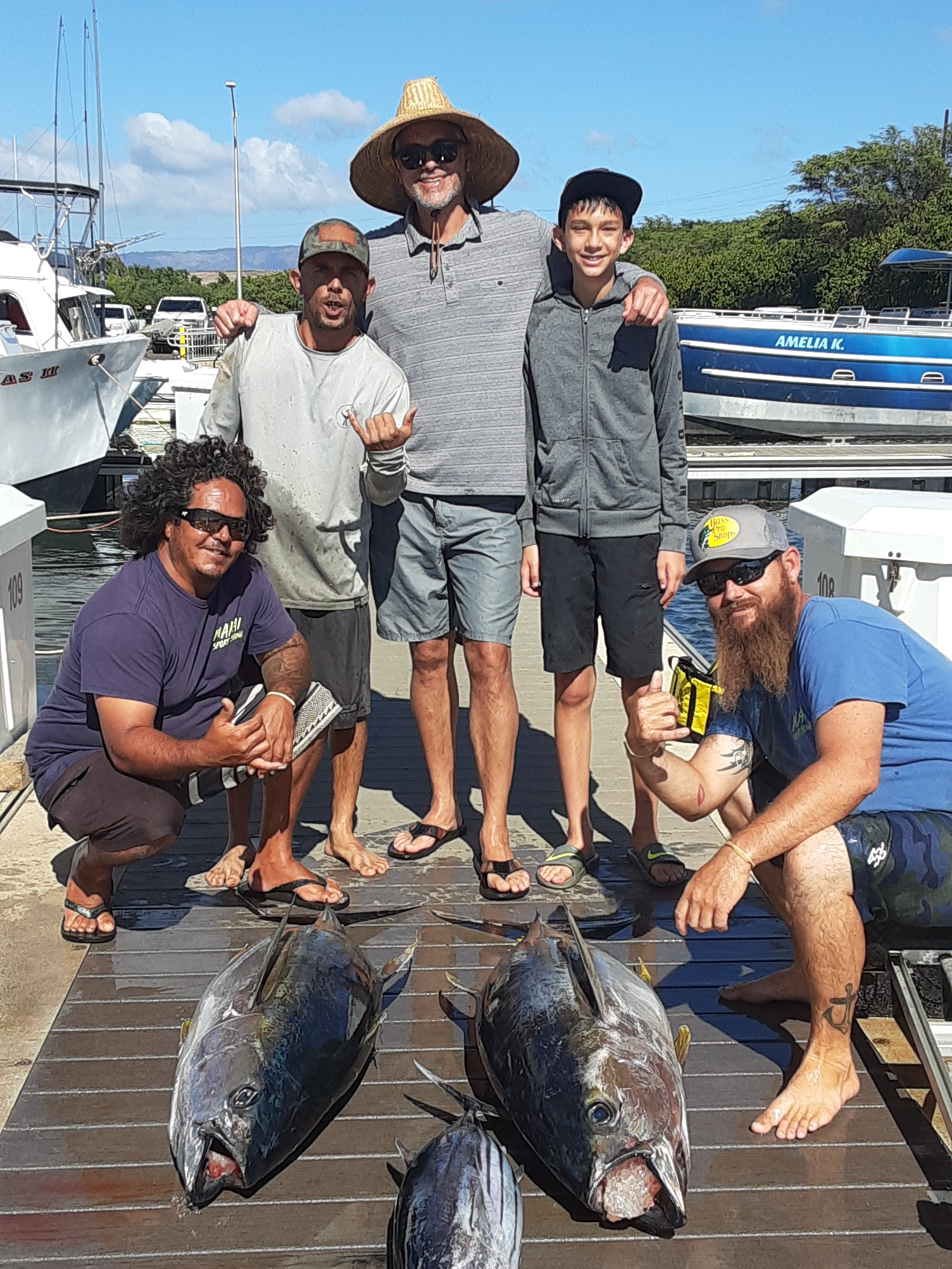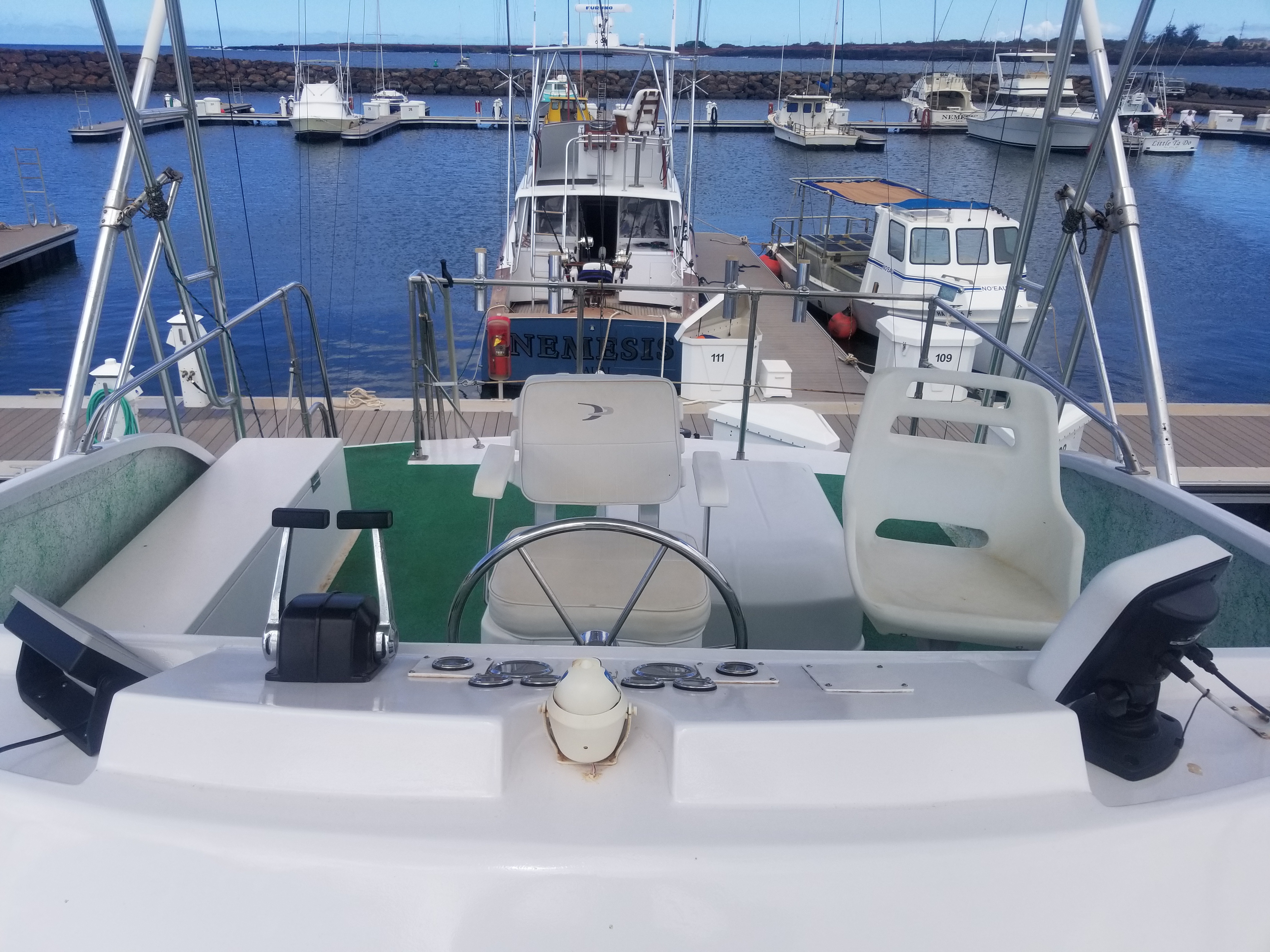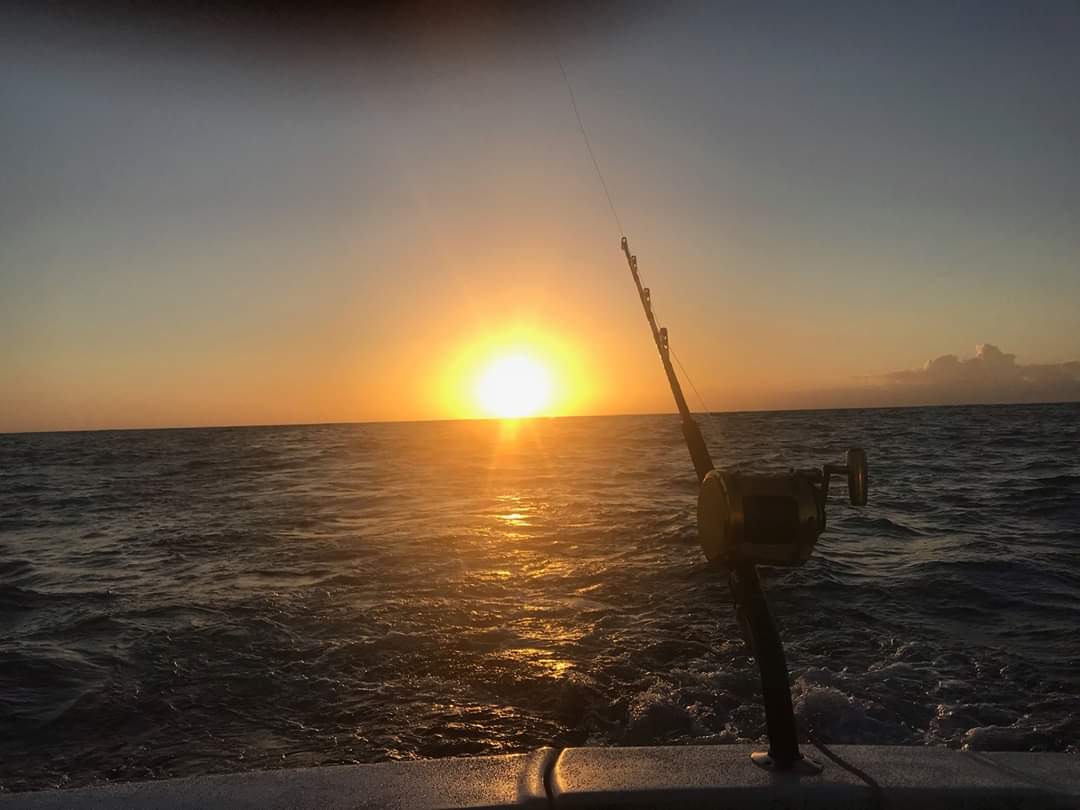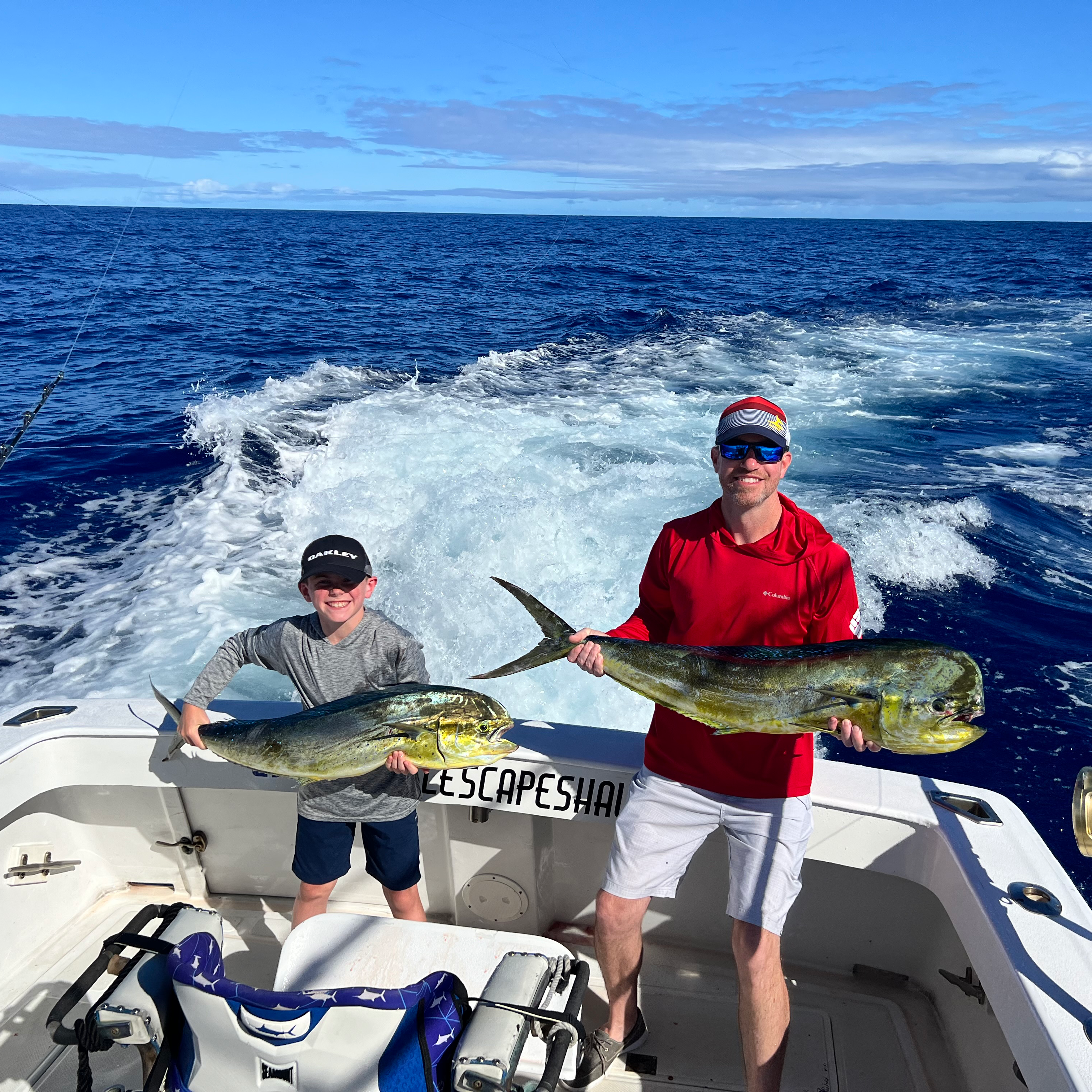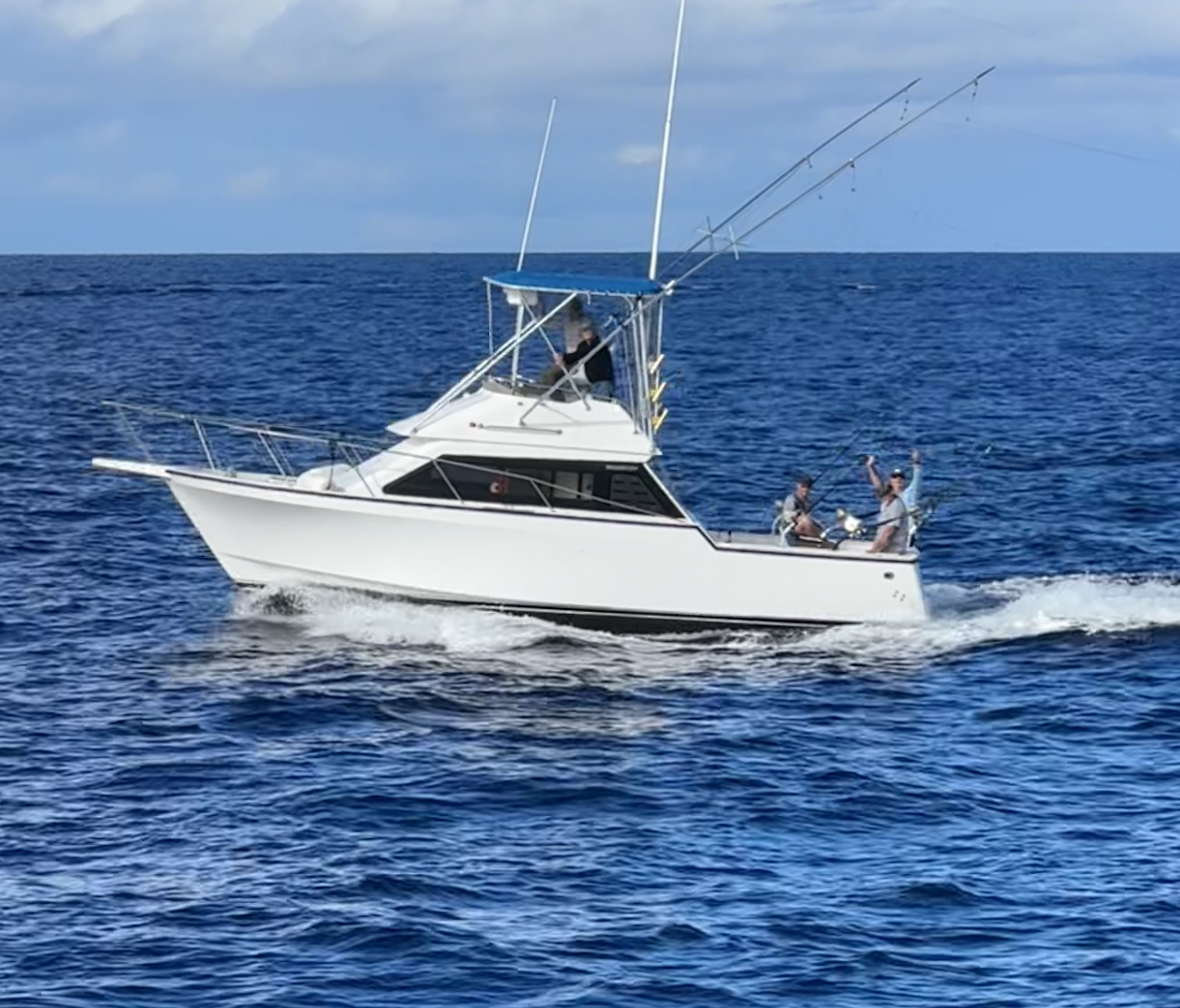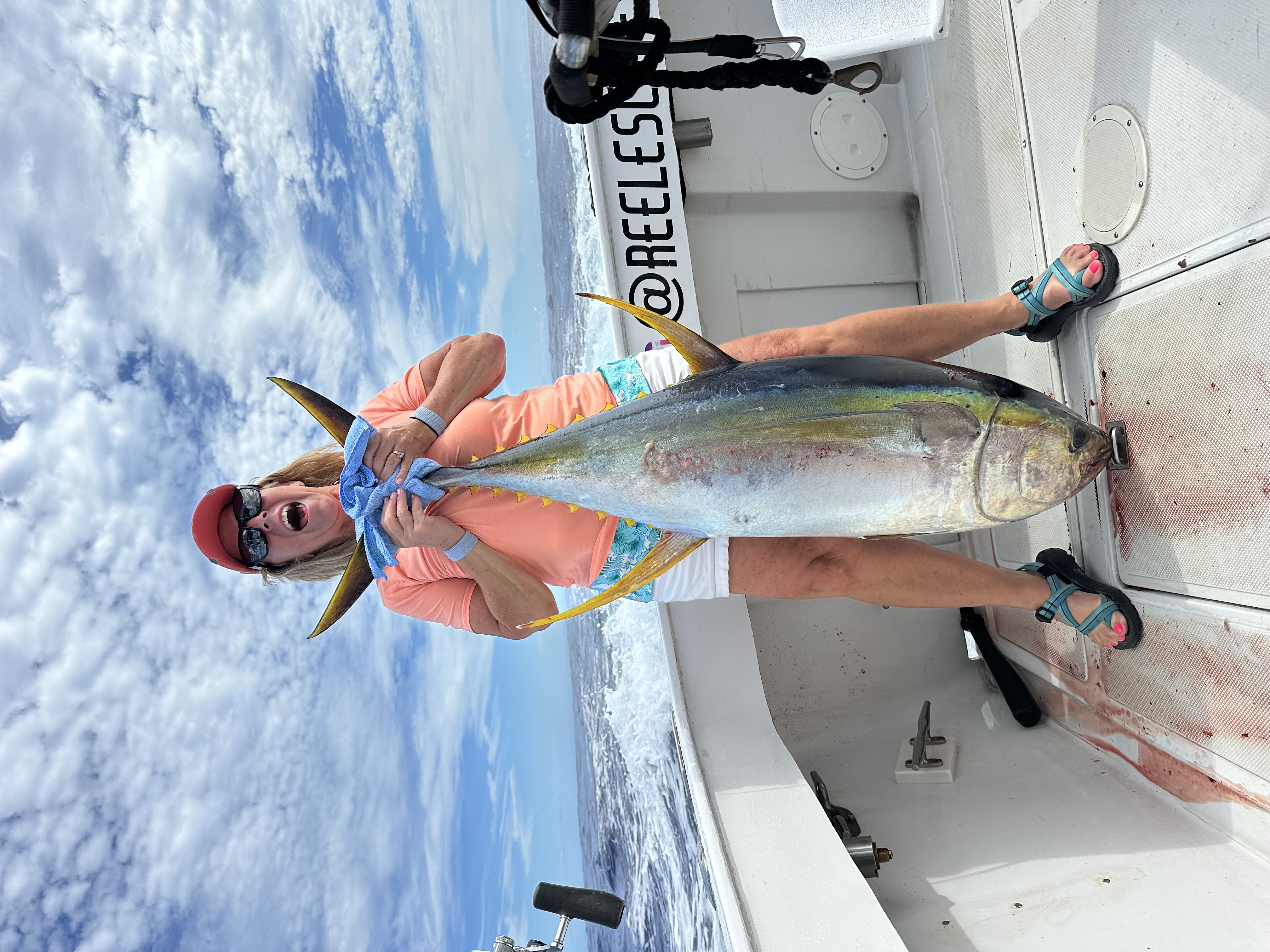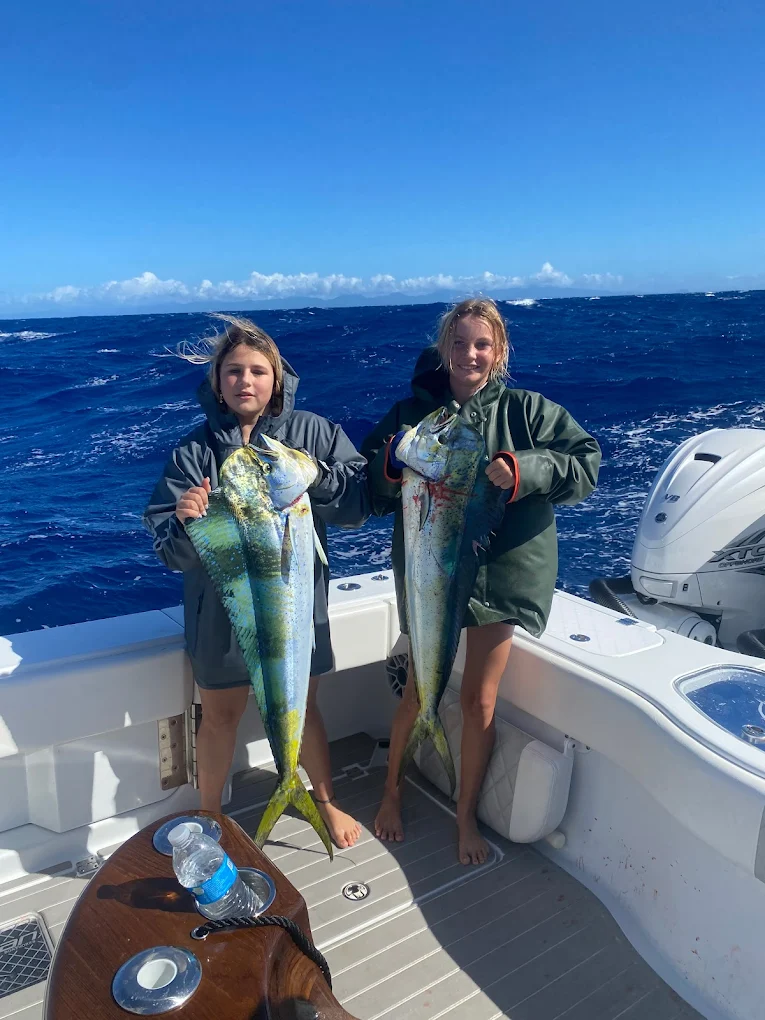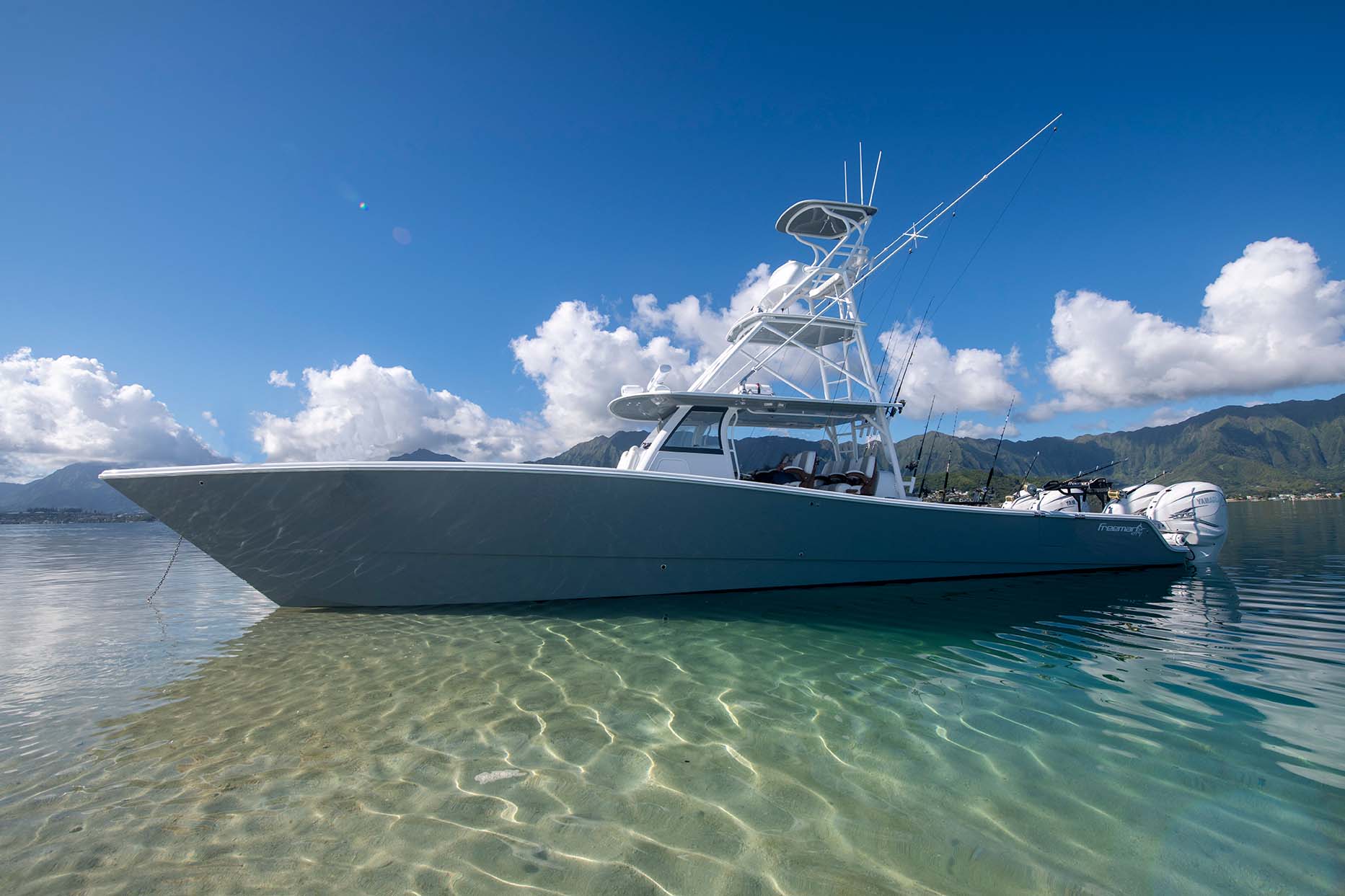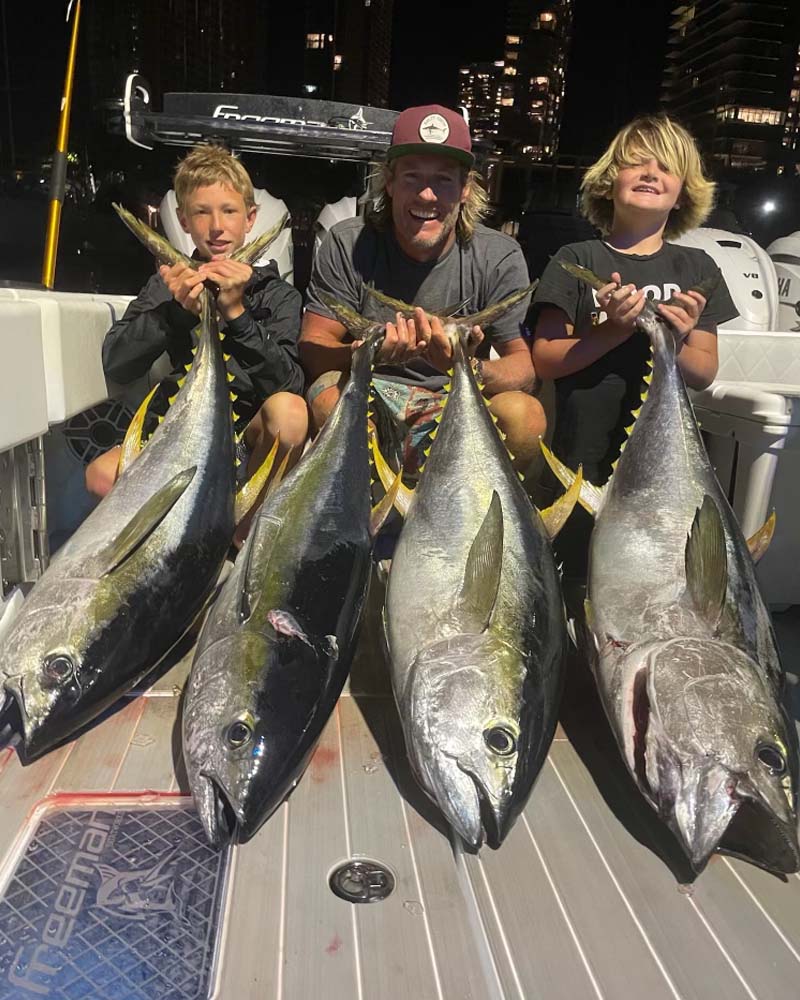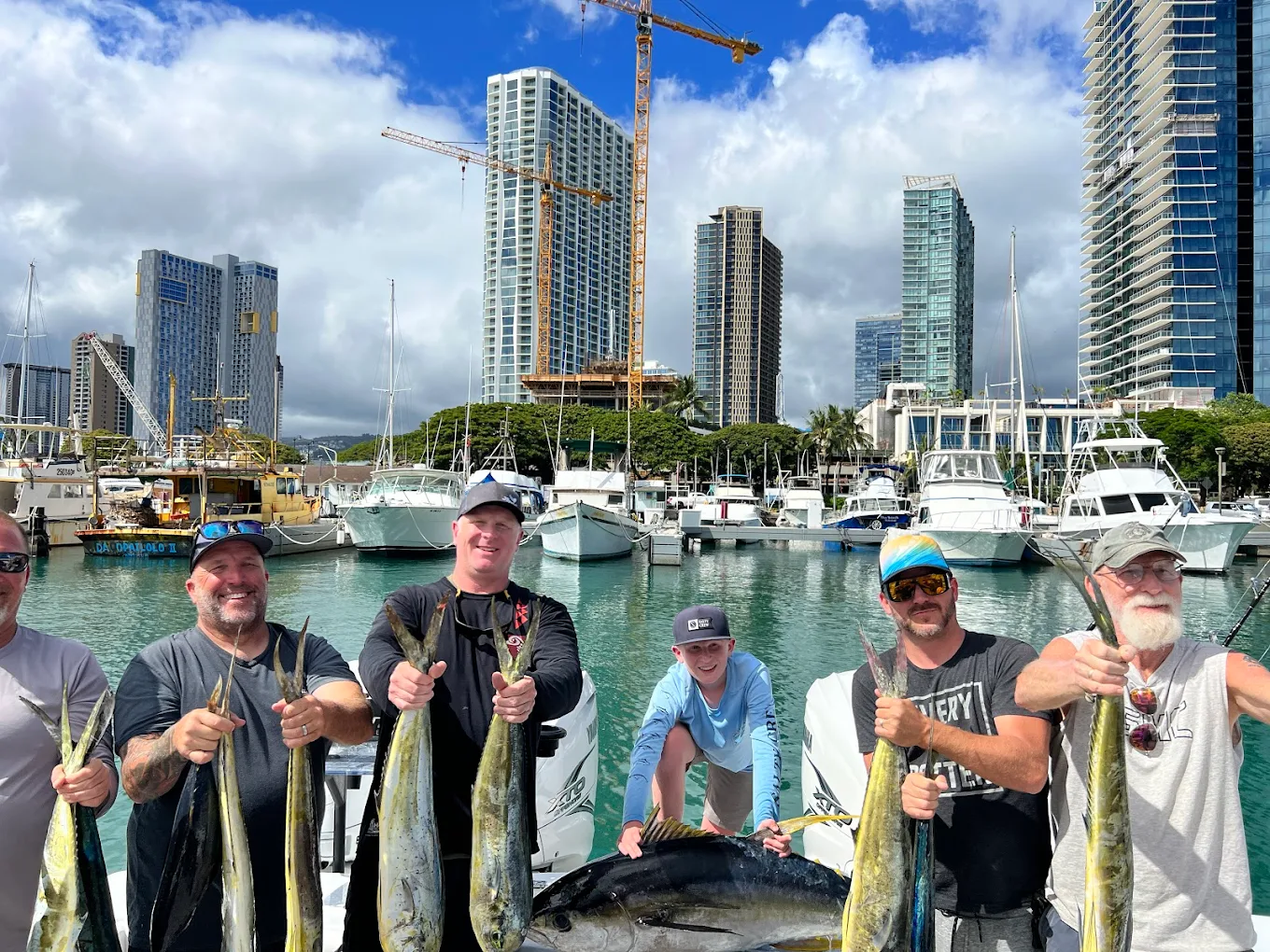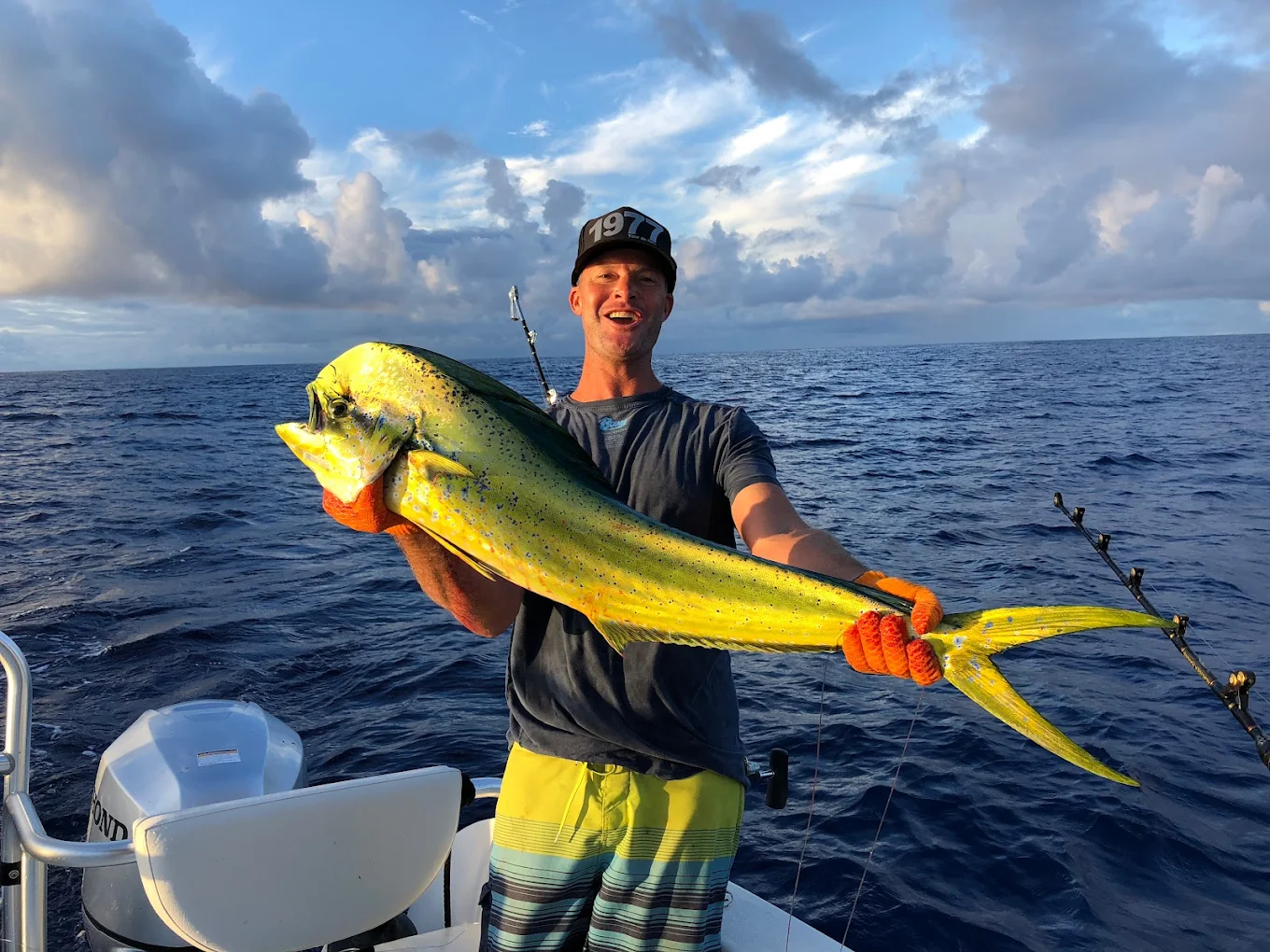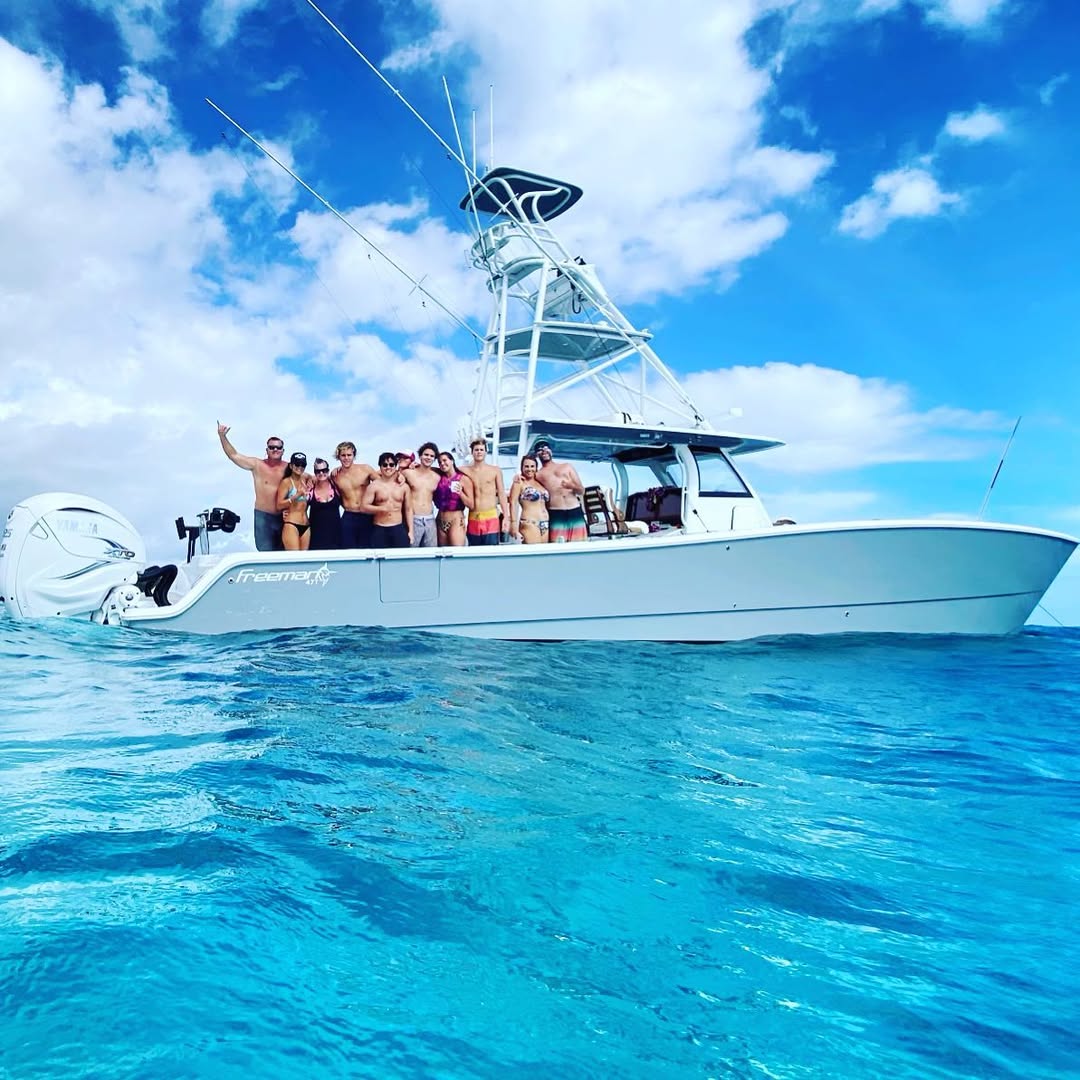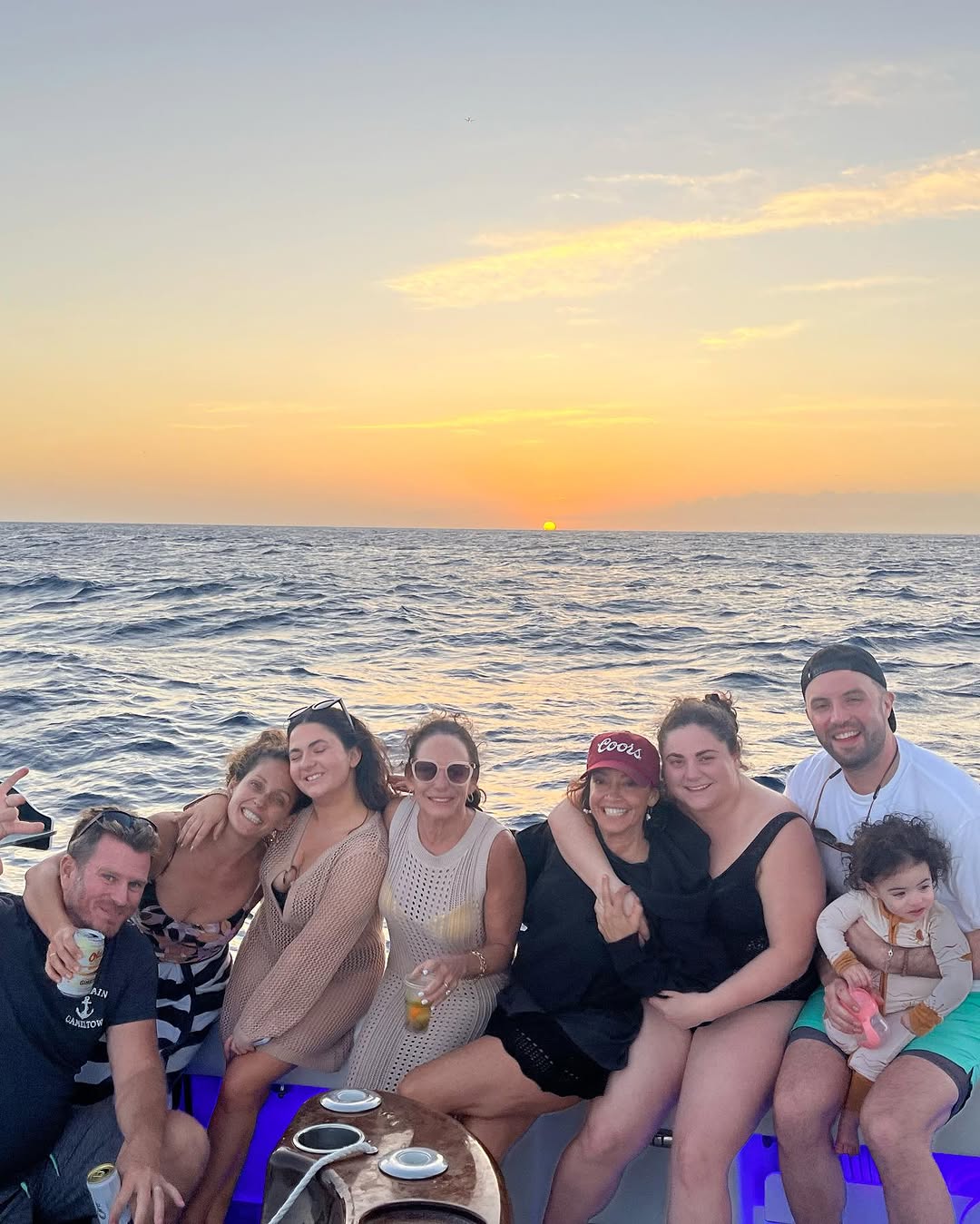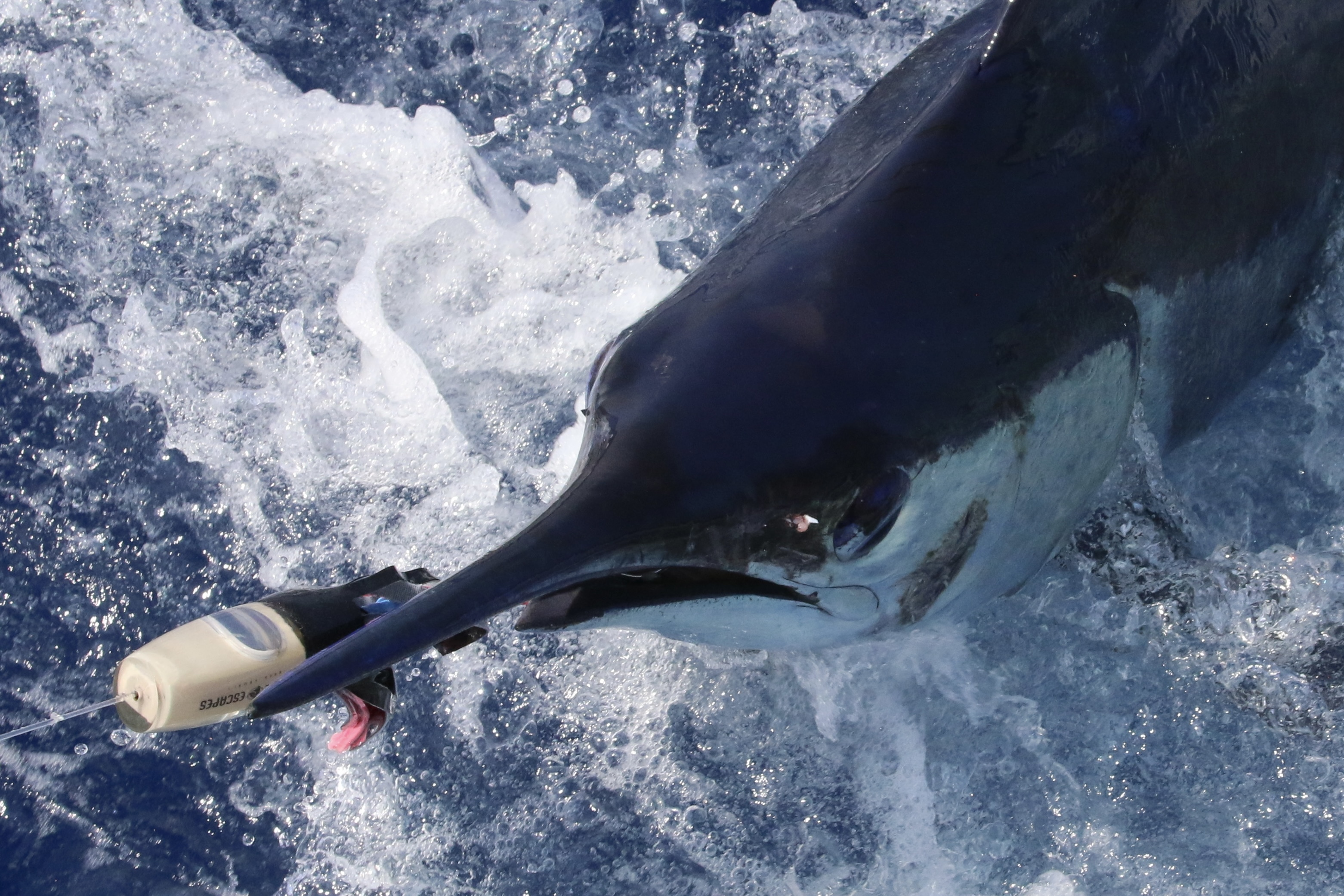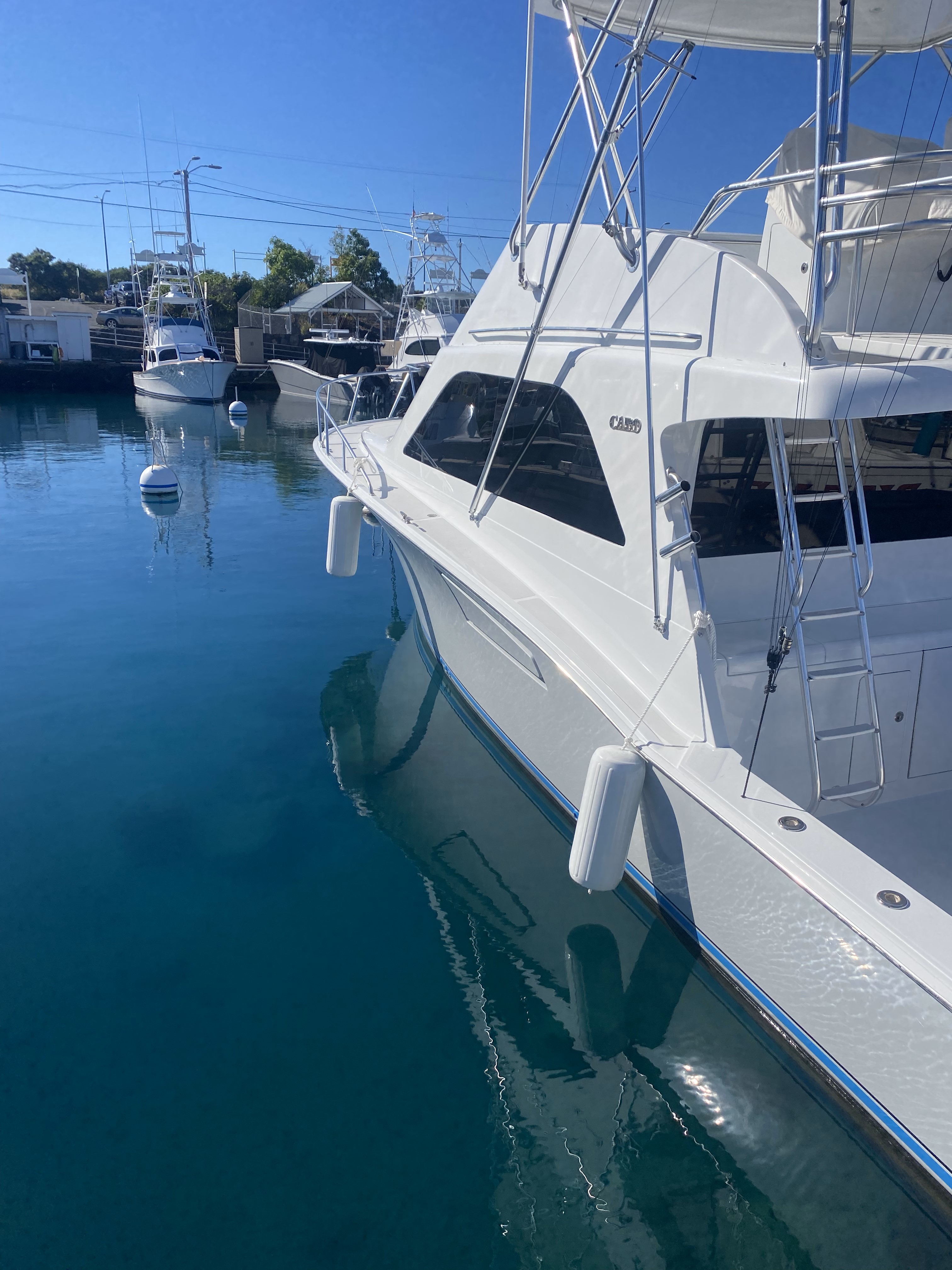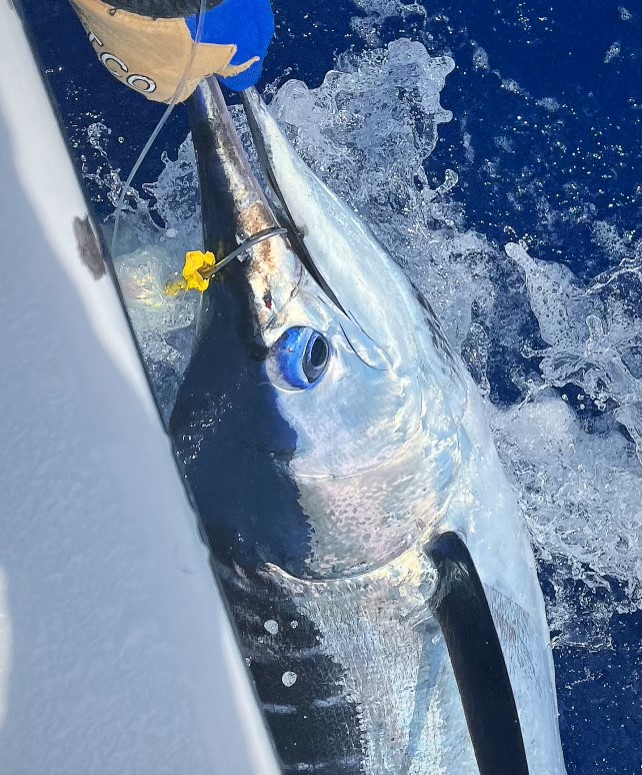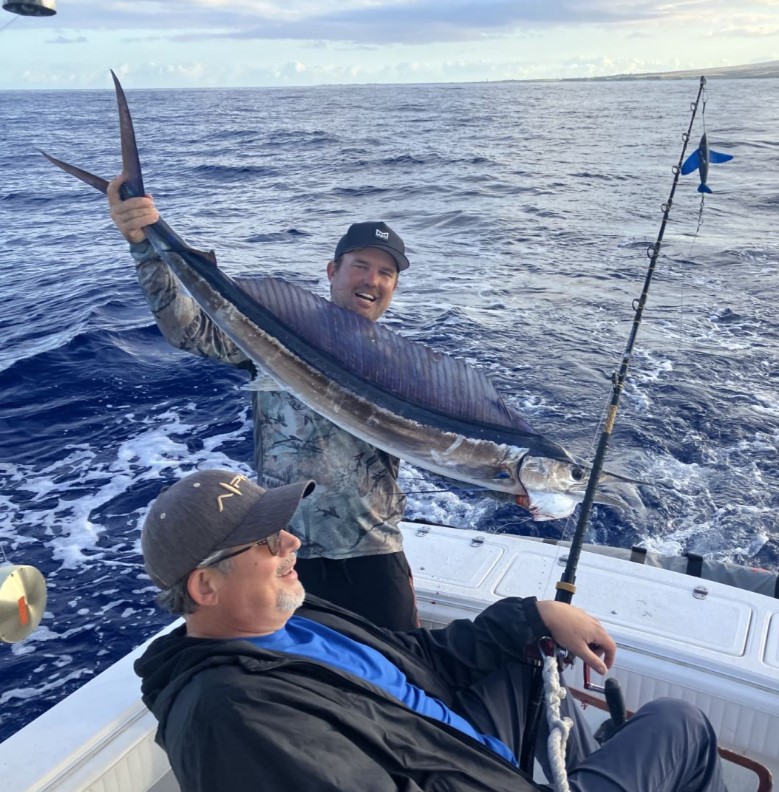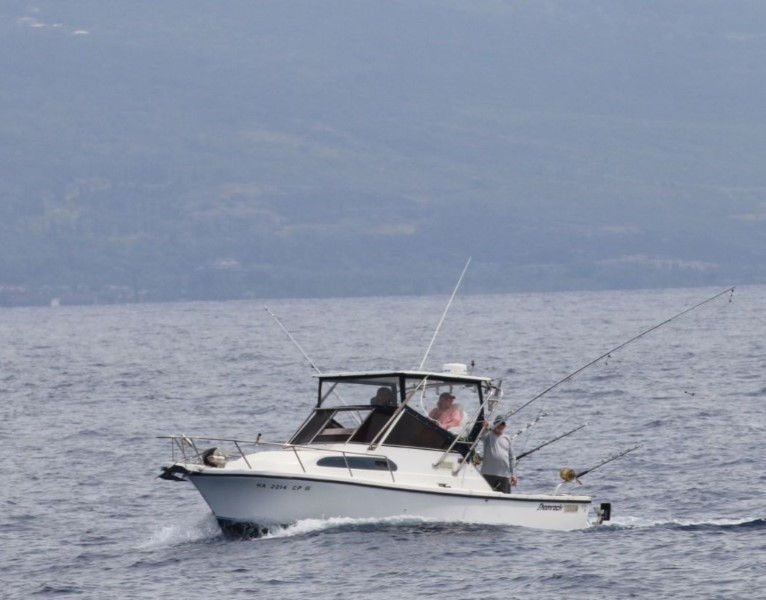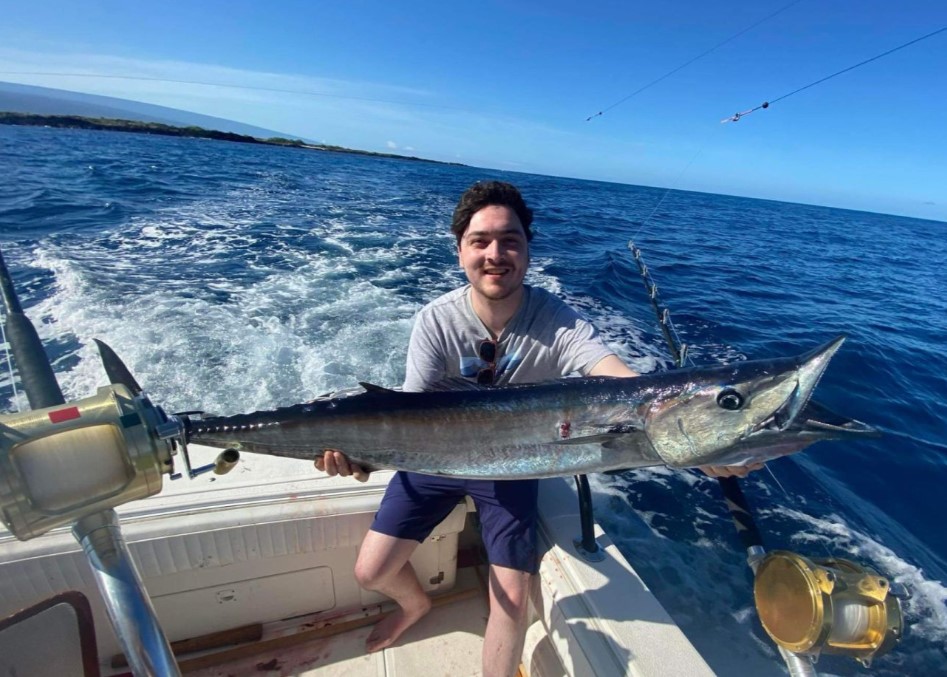Damn Good Guides
Experts Available 24/7
100% Weather Guarantee
Recently Booked Nearshore Fishing Charters In Hawaii
Deep Sea, Nearshore Fishing in Honolulu
Honolulu's Ultimate Sportfishing
Deep Sea, Nearshore Fishing in Haleiwa
VIP Pelagic Fishing
Deep Sea, Nearshore, Snorkeling in Kaiminani
Fishing And Snorkel Trips
Deep Sea, Nearshore, Snorkeling in Kaiminani
Kaiminani, HI Offshore Fishing
Top Species for Nearshore Fishing in Hawaii
“Our Damn Good Guides go above and beyond, and we’ve handpicked every single one. We’re passionate about the outdoors and look forward to getting you out on the trip of a lifetime, every time.”
Jonathan and Attison | Co-founders | Austin, Texas
Other Captain Experiences Trips in Hawaii
Eastside Sportfishing Half Day
Deep Sea Fishing in Kailua-Kona
Kona Big Game Fishing - 31’ Bertram
Maui Sportfishing
Deep Sea Fishing in Kailua-Kona
Kona Coast Big Game Fishing
4 Hour Hawaiian Sportfishing
6 Hour Hawaiian Sportfishing
Deep Sea Fishing in Kailua-Kona
Private Fishing Charter
FULL-DAY SPORT FISHING ON OAHU
HALF-DAY SPORT FISHING ON OAHU
SUNSET CRUISE ON OAHU
Deep Sea Fishing in Kailua-Kona
A'u Nui 40' Cabo
Deep Sea Fishing in Kailua-Kona
4-8 Hour Offshore Trip
Need a Place to Stay?
Everything to Know About Booking a Hawaii nearshore fishing charter
What are the best nearshore fishing charters in Hawaii?
The best nearshore fishing charters in Hawaii are:
What is nearshore in Hawaii all about?
Nearshore areas in Hawaii are vital ecosystems characterized by their unique biodiversity and ecological importance. These coastal zones, stretching from the high tide mark to the edge of the continental shelf, are home to an array of marine life including coral reefs, fish, and various invertebrates. The vibrant coral reefs are not only a visual spectacle but also play a crucial role in maintaining the health of the ocean by providing habitat, food, and breeding grounds for many species. These reefs also offer significant benefits to humans, such as protecting shorelines from erosion and supporting local economies through tourism and fishing.
The health of Hawaii’s nearshore waters is influenced by both natural and human factors. Natural events like hurricanes and El Niño can cause substantial damage to coral reefs, while human activities such as overfishing, pollution, and coastal development exacerbate the stress on these ecosystems. For instance, runoff from agriculture and urban areas introduces nutrients and sediments into the water, leading to problems like algal blooms and reduced water quality. Conservation efforts are essential to mitigate these impacts, including marine protected areas, sustainable fishing practices, and community-based management initiatives aimed at preserving these critical habitats.
Community involvement is a cornerstone of effective nearshore management in Hawaii. Local communities often have a deep connection to the ocean, which is reflected in traditional practices and knowledge that have been passed down through generations. These communities play an active role in monitoring and protecting their coastal environments through initiatives like the Aloha ‘Āina Project and the Hawaii Coral Reef Strategy. By combining scientific research with traditional knowledge and community engagement, Hawaii aims to ensure the sustainability of its nearshore ecosystems for future generations, balancing ecological health with economic and cultural needs.
What are the most popular months to go nearshore in Hawaii?
The nearshore seasons in Hawaii bring distinct changes to the coastal environments, influencing both marine life and human activities. During the summer months, typically from May to October, the weather is warm and the ocean conditions are relatively calm. This period is characterized by an abundance of marine activity, as many species of fish, sea turtles, and other marine organisms thrive in the warmer waters. The summer season is also prime time for recreational activities such as snorkeling, diving, and surfing, attracting tourists and locals to the beaches.
As the seasons transition into winter, from November to April, Hawaii’s nearshore waters undergo significant changes. The winter months bring larger swells and rougher seas, especially on the north and west shores of the islands. These conditions are ideal for big wave surfing, drawing surfers from around the world to famous spots like Waimea Bay and the Banzai Pipeline. However, the rougher seas can also pose challenges for marine life and coastal ecosystems. Some species may move to deeper waters to avoid turbulent conditions, and the increased wave action can cause erosion and impact coral reefs.
Spring and fall serve as transitional periods where the weather and ocean conditions moderate between the extremes of summer and winter. These seasons often see more variable weather patterns and mixed ocean conditions. During these times, the water temperatures are moderate, and marine life begins to adjust to the changing environment. For instance, spring is a crucial time for many fish species to spawn, taking advantage of the calmer and warmer conditions. Fall, on the other hand, prepares the coastal ecosystems for the approaching winter, with many marine species migrating or adjusting their behaviors in response to the changing environment. Overall, the nearshore seasons in Hawaii create a dynamic and ever-changing landscape that supports a rich diversity of life and offers a wide range of activities throughout the year.
What techniques are popular for nearshore in Hawaii?
Nearshore fishing in Hawaii encompasses a variety of types and techniques, each tailored to the unique coastal environments and the species that inhabit them. Shoreline fishing, or “whipping,” is a popular method where anglers cast lures or bait from the shore into the surf. This technique is often used to catch species such as ulua (giant trevally), papio (juvenile trevally), and various types of reef fish. Shoreline fishing is accessible and popular among locals and tourists alike, providing a direct connection to the ocean and an enjoyable outdoor experience.
Spearfishing is another prevalent nearshore fishing technique in Hawaii, requiring skill and breath-hold diving abilities. Divers use spears or spear guns to hunt fish while free diving or snorkeling. This method is particularly effective for targeting specific species like uhu (parrotfish), kumu (goatfish), and tako (octopus). Spearfishing is not only a traditional practice but also a sustainable method when done responsibly, as it allows for selective harvesting and minimal bycatch. It is a deeply ingrained cultural activity, often passed down through generations, reflecting a deep respect for the marine environment.
Boat fishing close to shore, known as “bottom fishing,” is also commonly practiced in Hawaii. Anglers use small boats to reach reefs, ledges, and other underwater structures where fish tend to congregate. Techniques include using baited hooks or lures to catch a variety of bottom-dwelling species such as opakapaka (pink snapper), onaga (long-tailed red snapper), and ehu (red snapper). Bottom fishing requires knowledge of local fishing spots and conditions, and it often yields larger catches compared to shore fishing. These different types and techniques of nearshore fishing highlight the rich cultural heritage and the diverse marine life of Hawaii’s coastal waters, offering both recreational and subsistence opportunities for those who engage in them.
What species are popular for nearshore in Hawaii?
Fishing nearshore in Hawaii offers anglers the opportunity to catch a wide variety of species, each with its own seasonal patterns and preferred habitats. One of the most sought-after fish is the ulua, or giant trevally. These powerful fish are a favorite among local fishermen due to their size and fighting ability. Ulua are typically found near rocky shorelines and reefs, and the best times to catch them are during the summer months when they are more active. Anglers often use live bait, large plugs, or heavy tackle to land these impressive fish.
Another popular species for nearshore fishing in Hawaii is the papio, which are juvenile trevally. Papio are abundant in Hawaiian waters and can be caught year-round, making them a reliable target for anglers. They inhabit a range of nearshore environments, including sandy beaches, coral reefs, and tidal pools. Papio are known for their aggressive strikes and are often caught using lures, flies, or bait. These fish are not only fun to catch but also make for excellent eating, which adds to their appeal.
Reef fish, such as uhu (parrotfish), kumu (goatfish), and manini (convict tang), are also commonly targeted in Hawaii's nearshore waters. These species are typically found in shallow coral reef areas where they feed on algae, invertebrates, and small crustaceans. Spearfishing and hook-and-line fishing are common methods used to catch these colorful and tasty fish. Uhu, with their strong jaws and vibrant colors, are especially prized by both spearfishers and anglers. These reef fish are an integral part of the Hawaiian diet and culture, reflecting the deep connection between the local communities and their coastal environment.
The Best Places to Fish in Hawaii
Other Types of Fishing in Hawaii
Types of Tours in Hawaii
Featured Cities
- Fishing Charters Near Me
- Austin Fishing Guides
- Biloxi Fishing Charters
- Bradenton Fishing Charters
- Cabo San Lucas Fishing Charters
- Cancun Fishing Charters
- Cape Coral Fishing Charters
- Charleston Fishing Charters
- Clearwater Fishing Charters
- Corpus Christi Fishing Charters
- Crystal River Fishing Charters
- Dauphin Island Fishing Charters
- Daytona Beach Fishing Charters
- Destin Fishing Charters
- Fort Lauderdale Fishing Charters
- Fort Myers Fishing Charters
- Fort Walton Beach Fishing Charters
- Galveston Fishing Charters
- Gulf Shores Fishing Charters
- Hatteras Fishing Charters
- Hilton Head Fishing Charters
- Islamorada Fishing Charters
- Jacksonville Fishing Charters
- Jupiter Fishing Charters
- Key Largo Fishing Charters
- Key West Fishing Charters
- Kona Fishing Charters
- Lakeside Marblehead Fishing Charters
- Marathon Fishing Charters
- Marco Island Fishing Charters
- Miami Fishing Charters
- Montauk Fishing Charters
- Morehead City Fishing Charters
- Naples Fishing Charters
- New Orleans Fishing Charters
- New Smyrna Beach Fishing Charters
- Ocean City Fishing Charters
- Orange Beach Fishing Charters
- Panama City Beach Fishing Charters
- Pensacola Fishing Charters
- Pompano Beach Fishing Charters
- Port Aransas Fishing Charters
- Port Orange Fishing Charters
- Rockport Fishing Charters
- San Diego Fishing Charters
- San Juan Fishing Charters
- Sarasota Fishing Charters
- South Padre Island Fishing Charters
- St. Augustine Fishing Charters
- St. Petersburg Fishing Charters
- Tampa Fishing Charters
- Tarpon Springs Fishing Charters
- Venice Fishing Charters
- Virginia Beach Fishing Charters
- West Palm Beach Fishing Charters
- Wilmington Fishing Charters
- Wrightsville Beach Fishing Charters
How are fishing conditions in Hawaii?
View Hawaii Fishing Reports from our damn good guides.
Didn't Find What You Were Looking For?
Our guides are Damn Good Guides, which means they’re vetted by our team of outdoor experts who know them on a first-name basis. We hand pick each and every one of them, and our network spans all across the US and beyond.
The proof is in the pudding, and we’re incredibly proud of our 4.9 / 5 average review score. Hit the button below to see more trip options:

